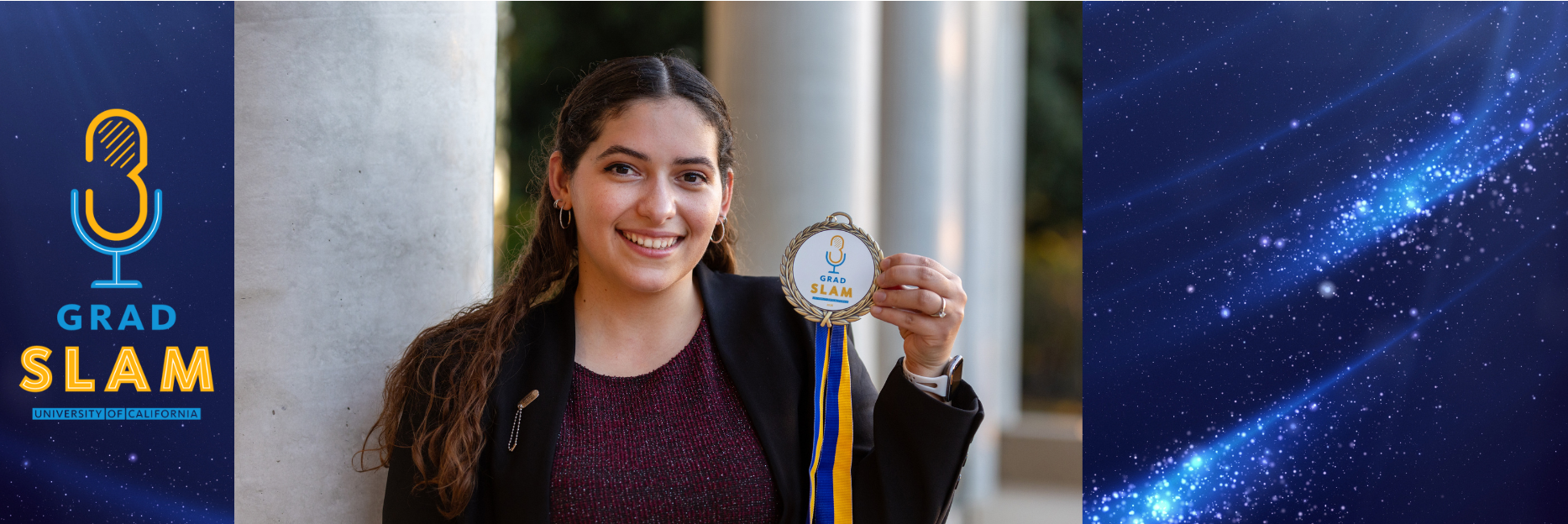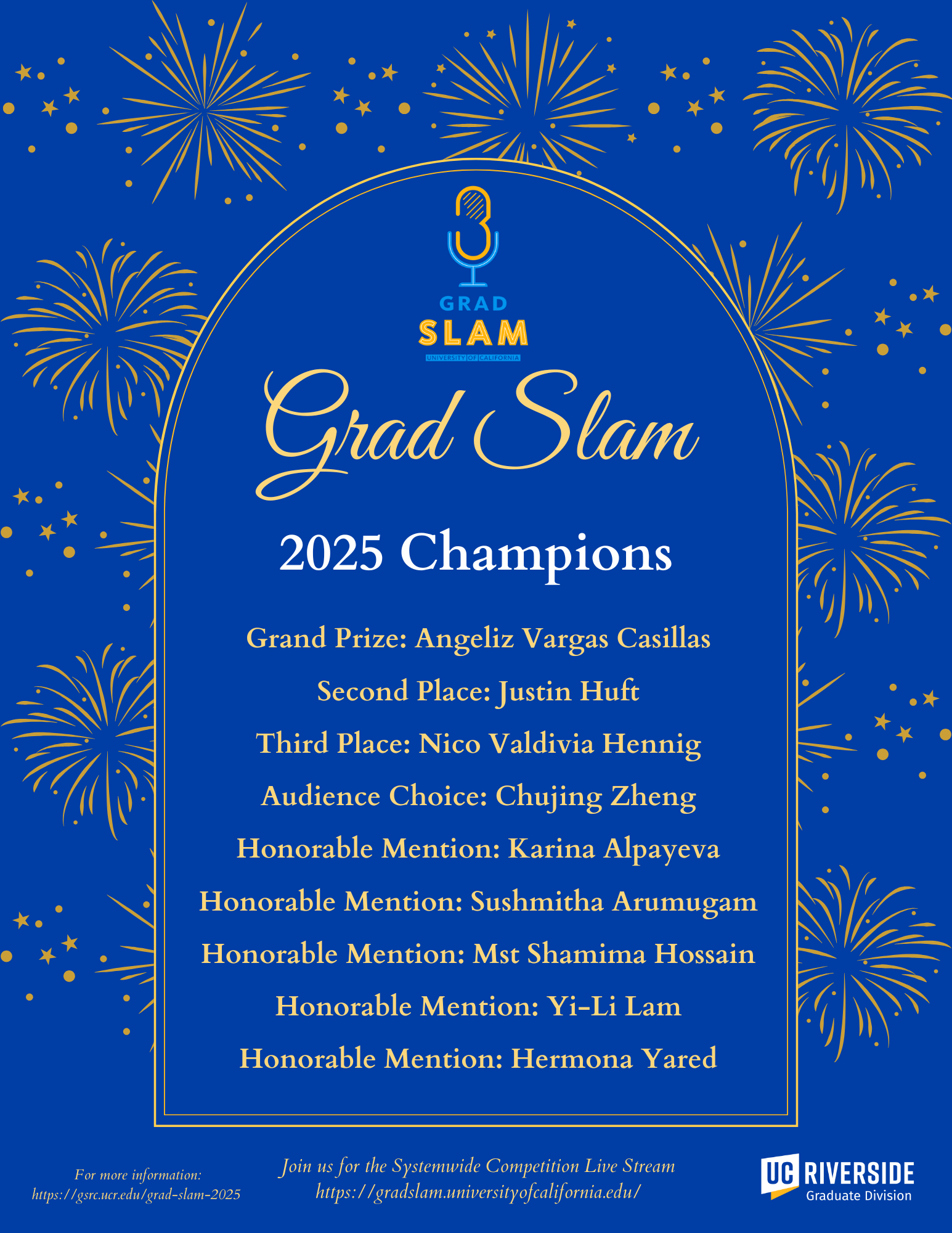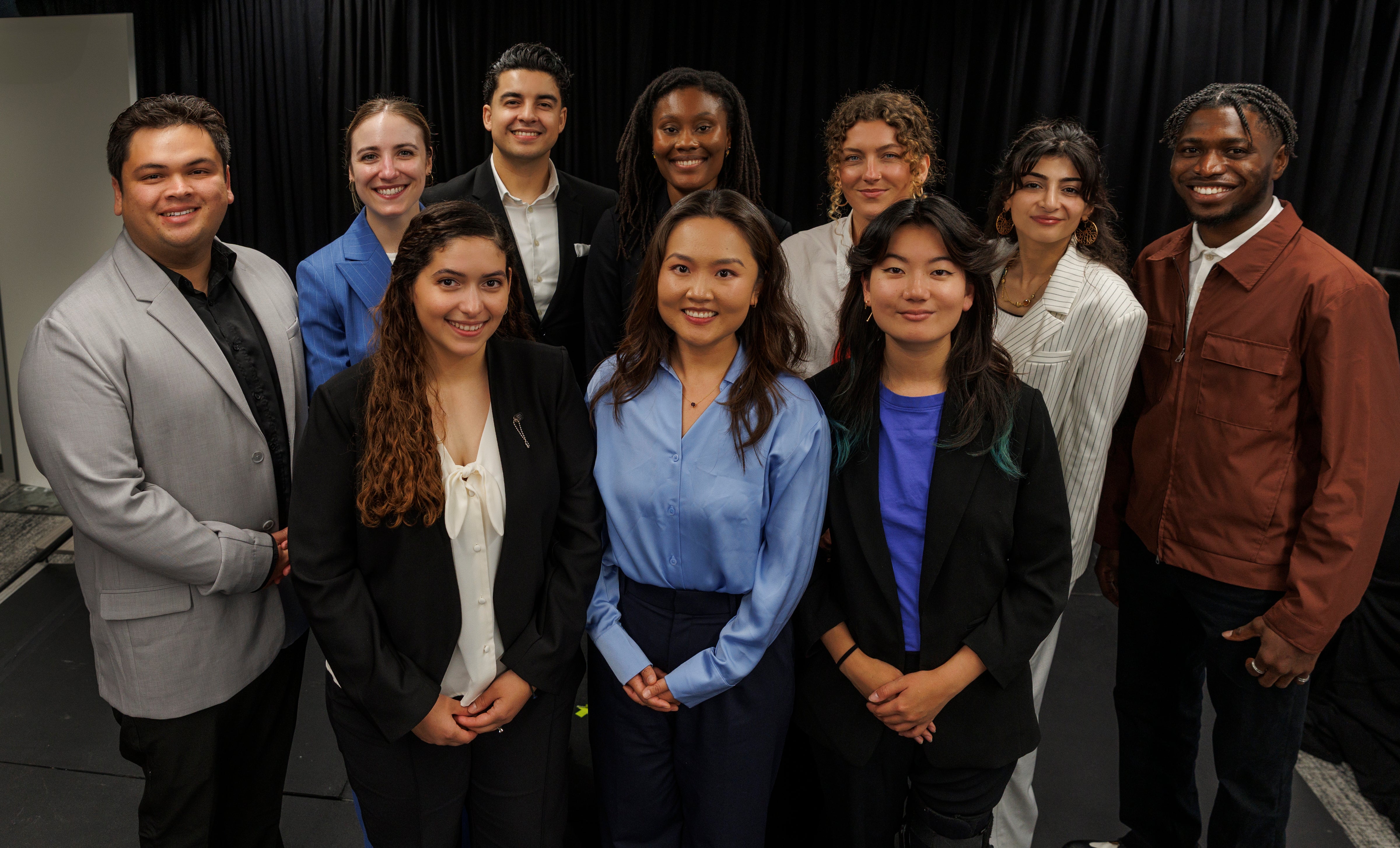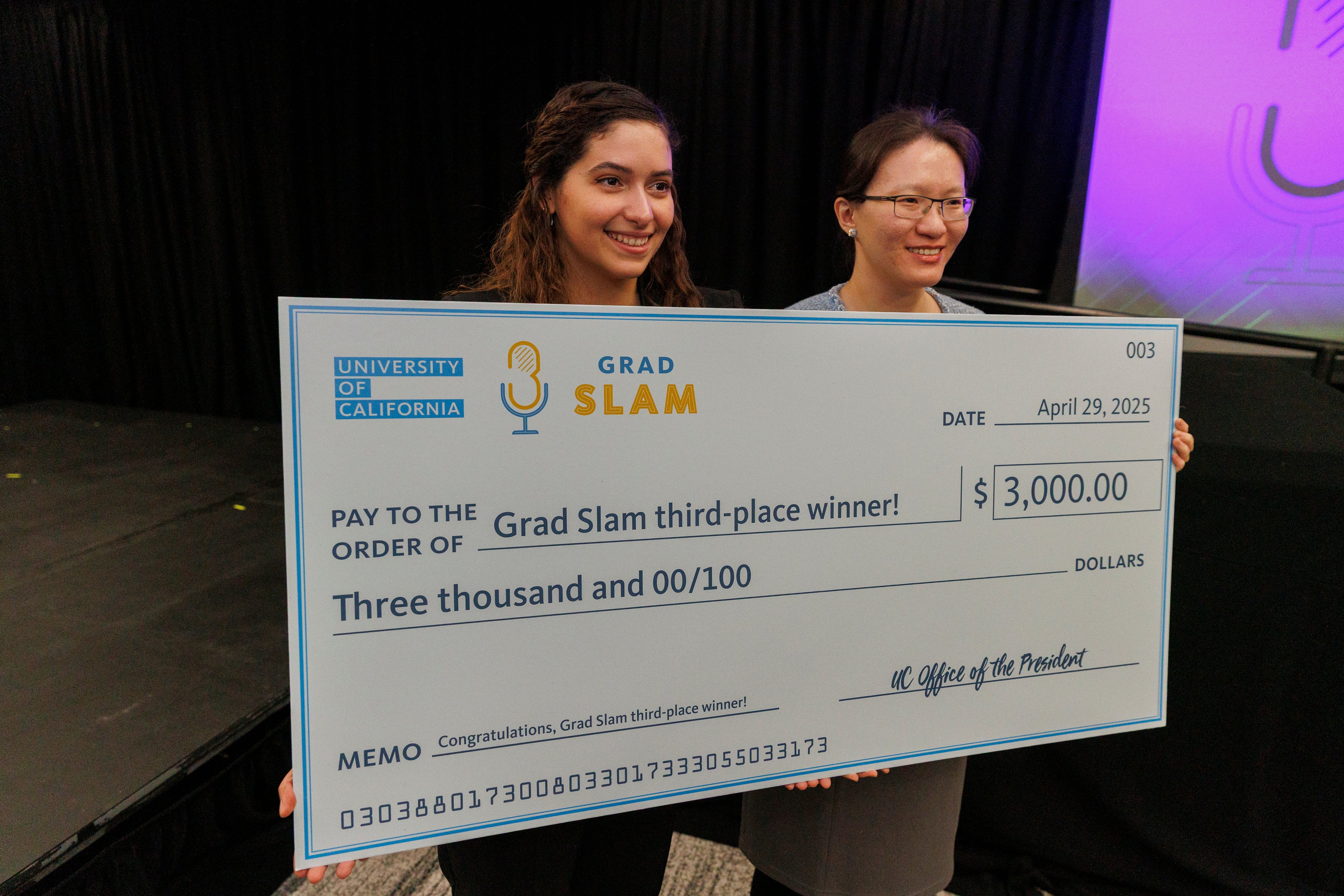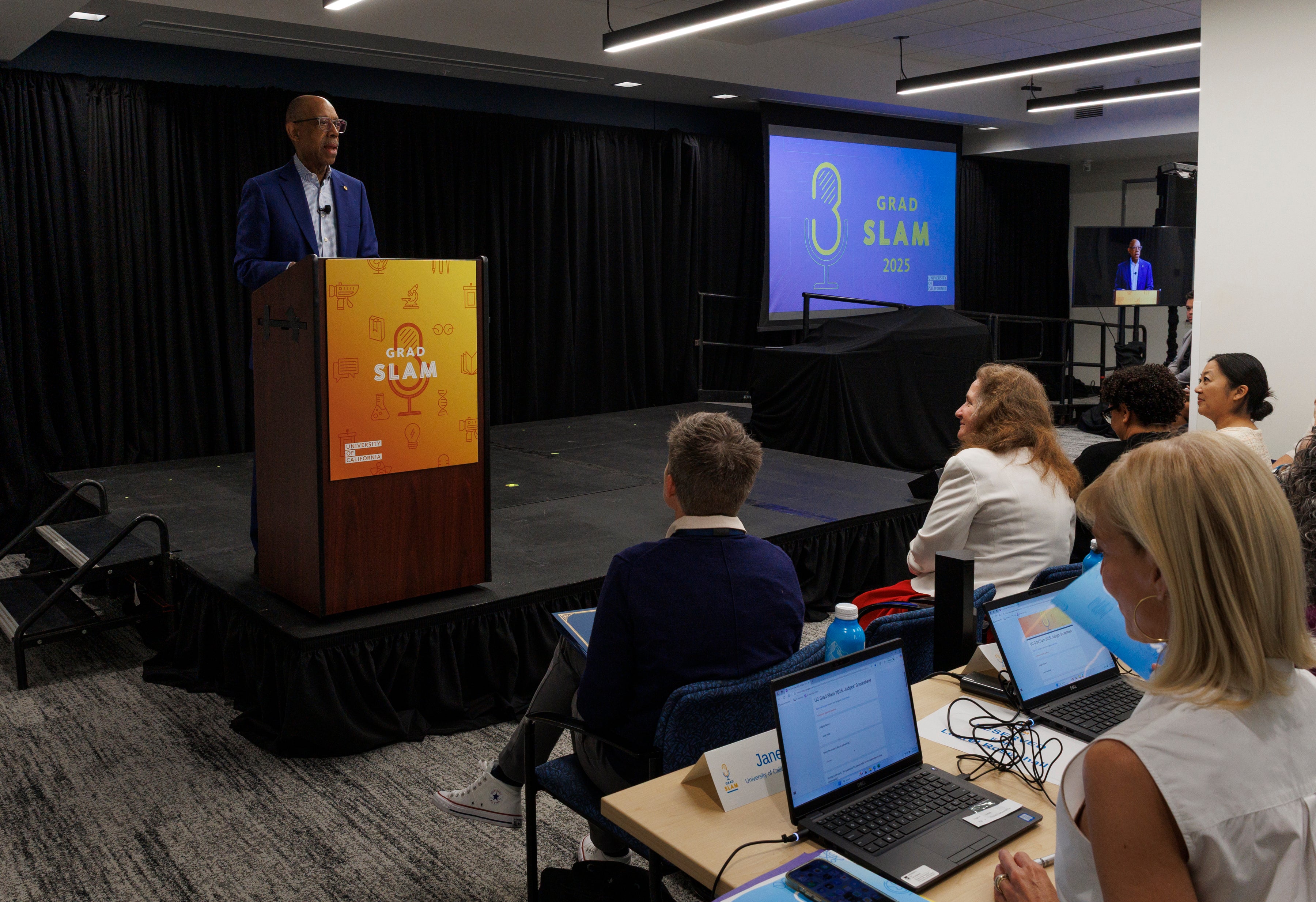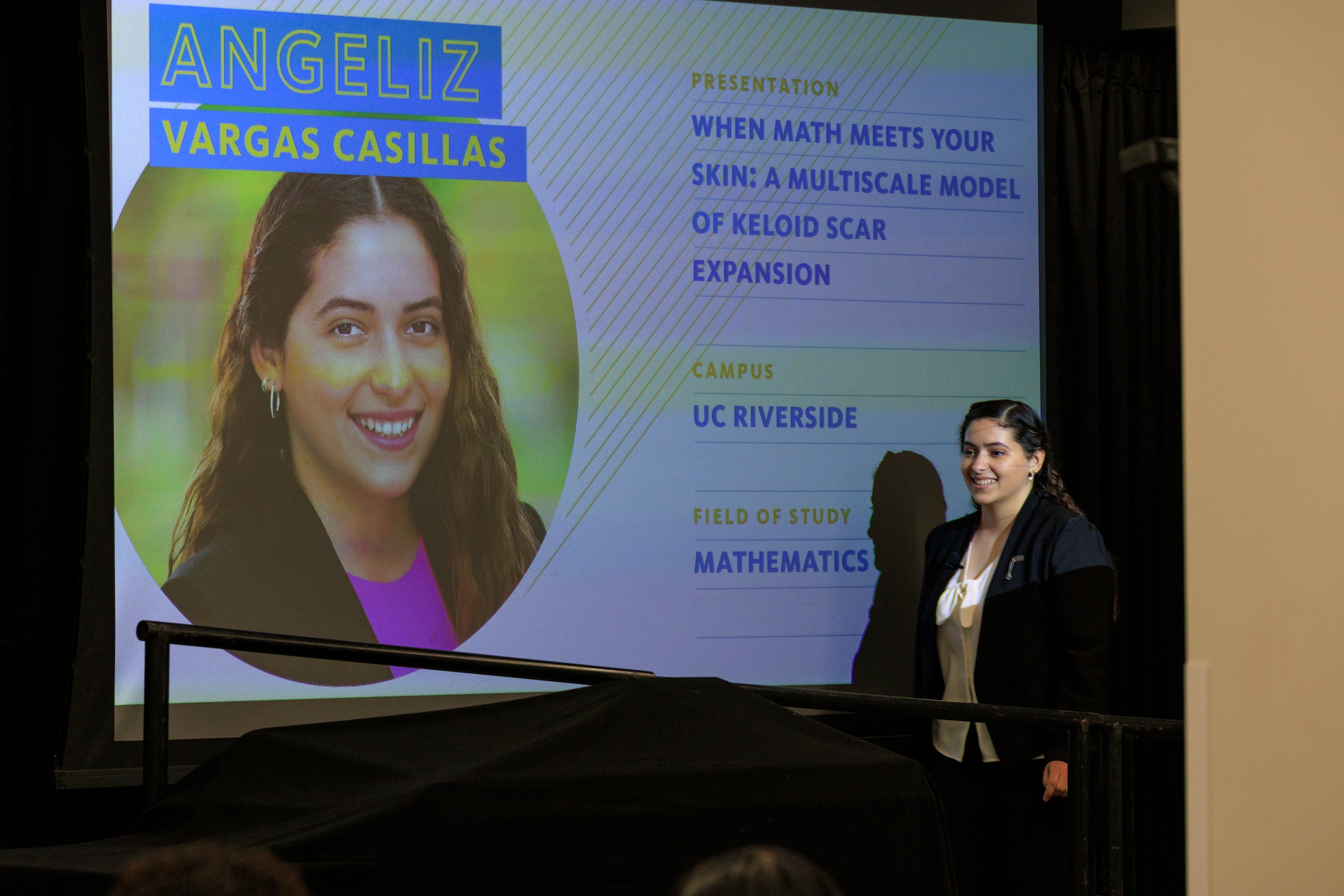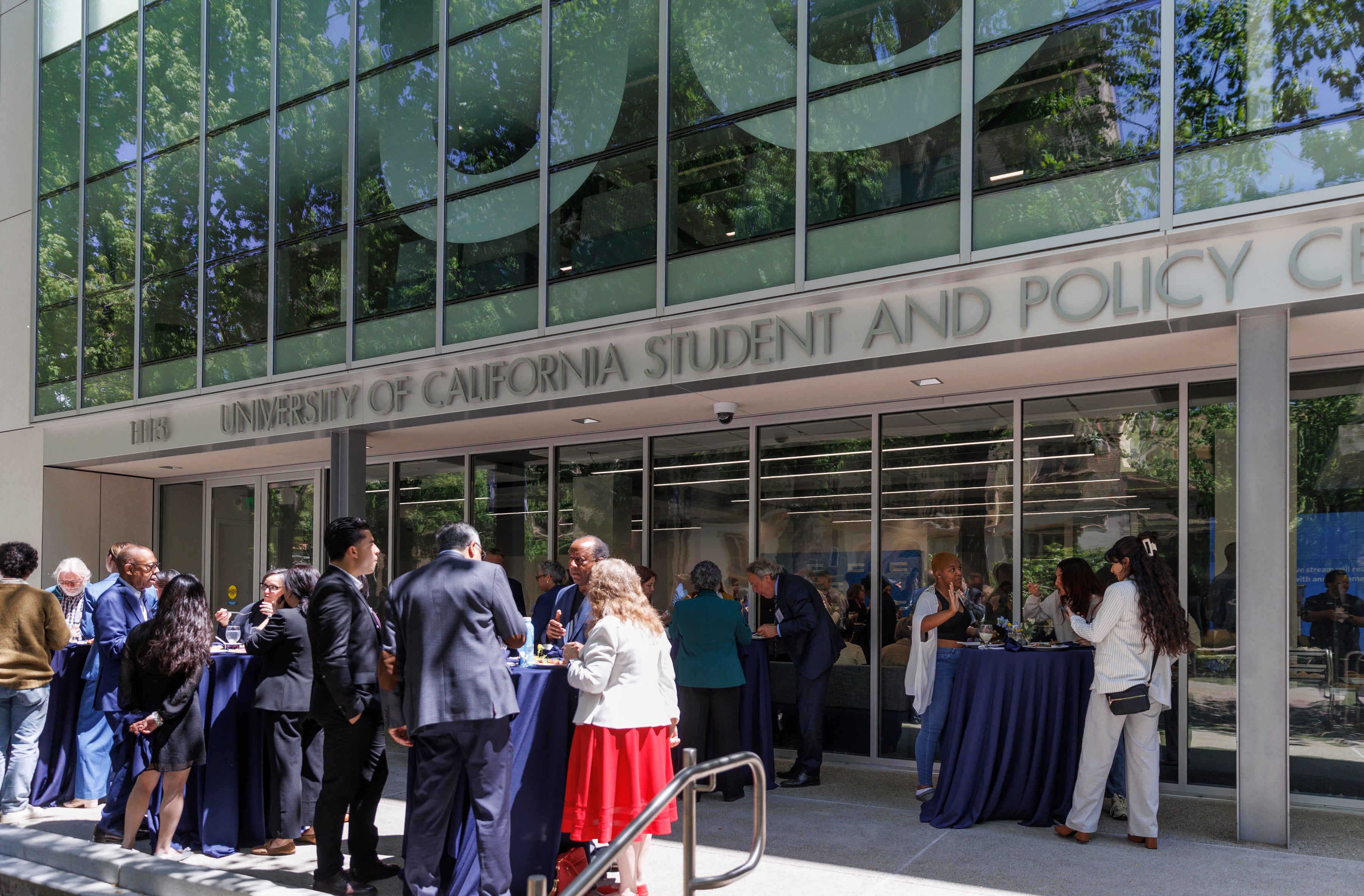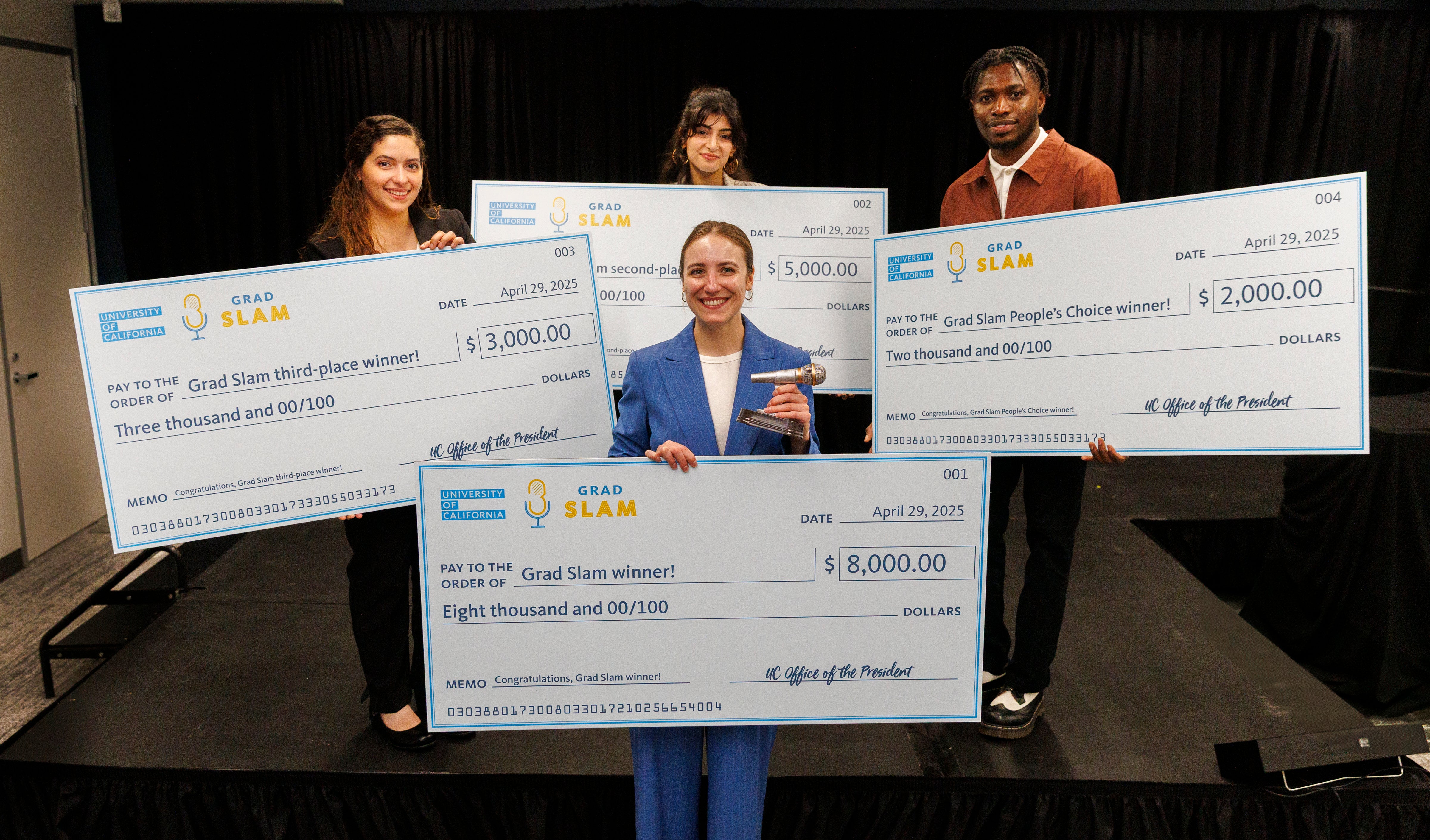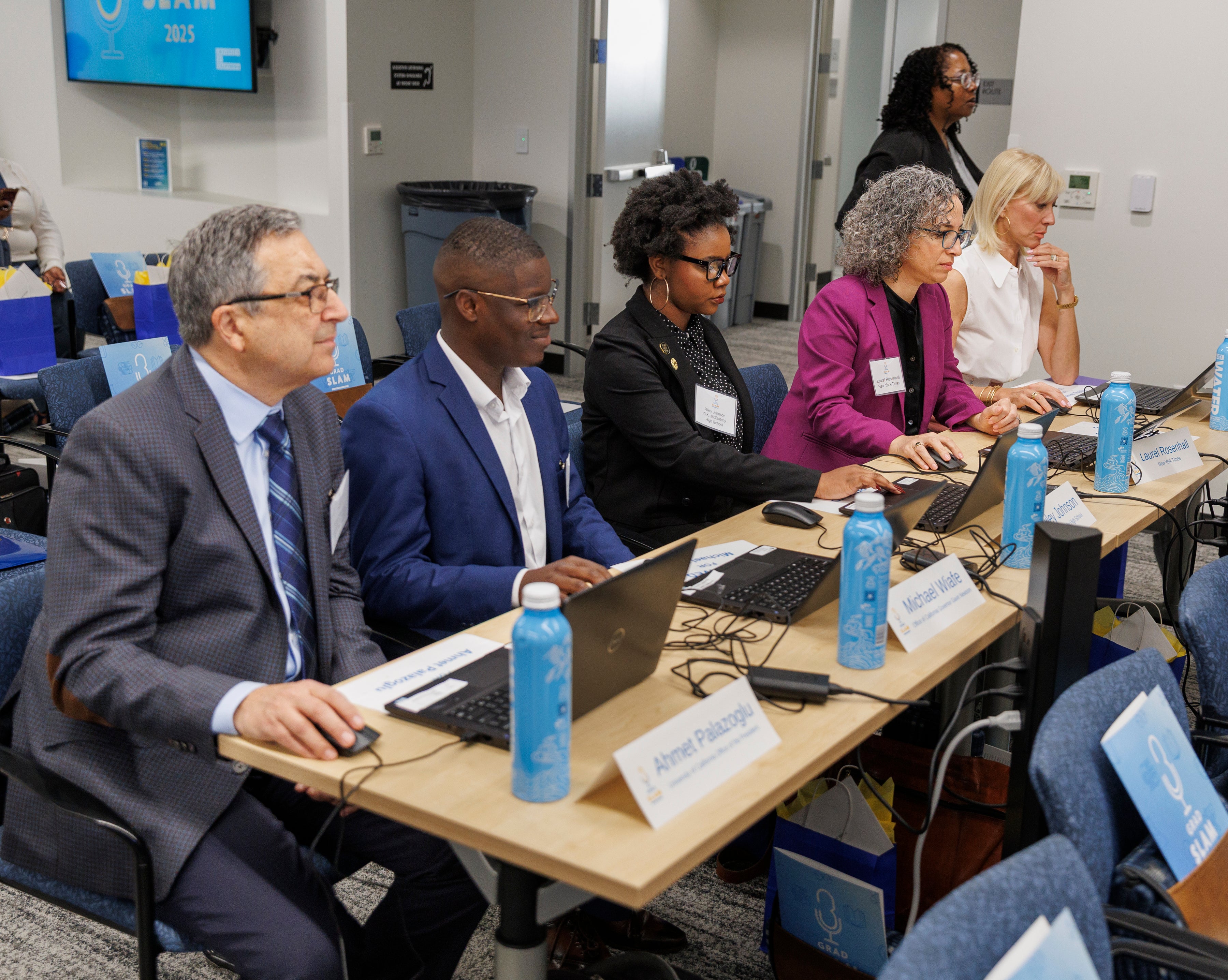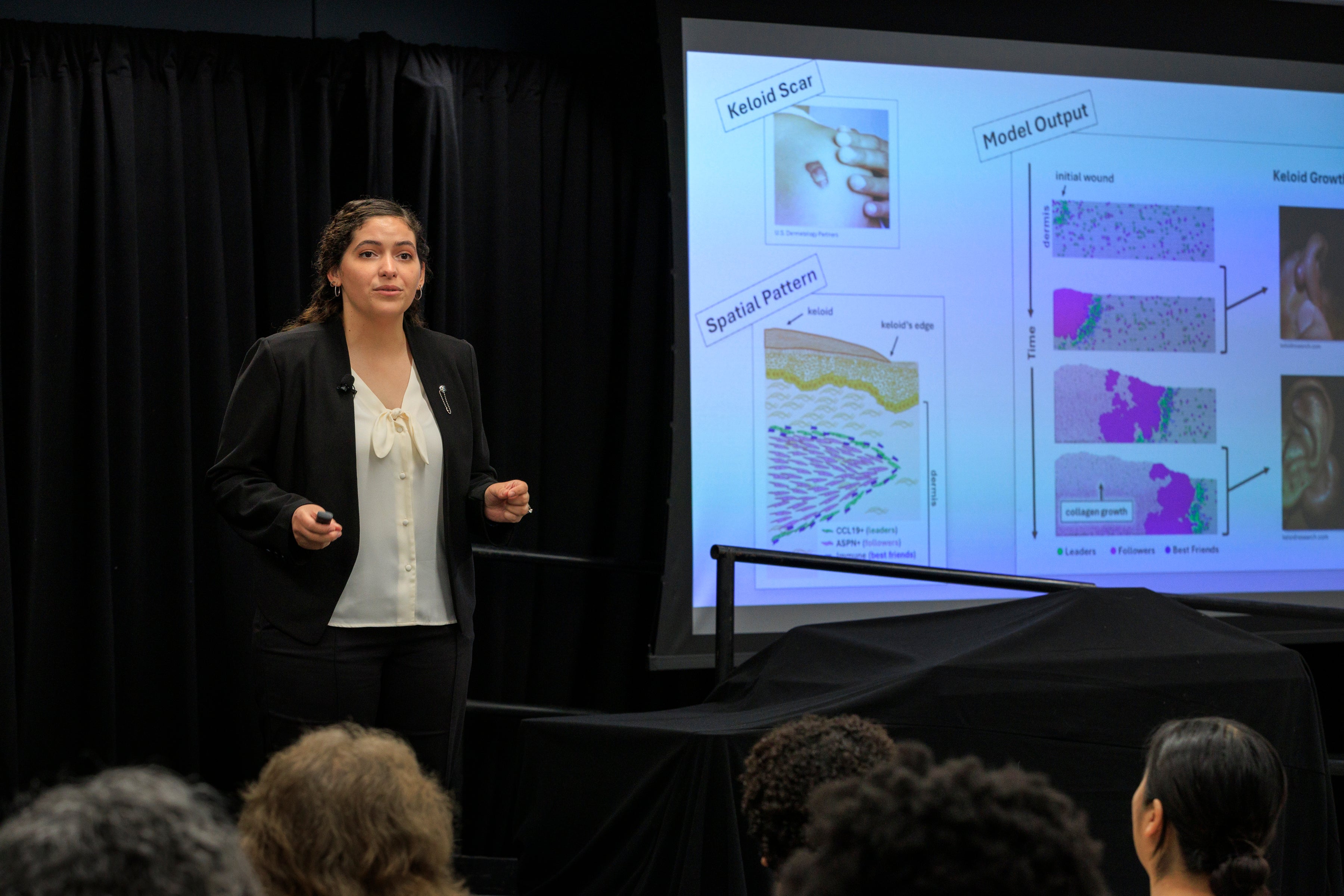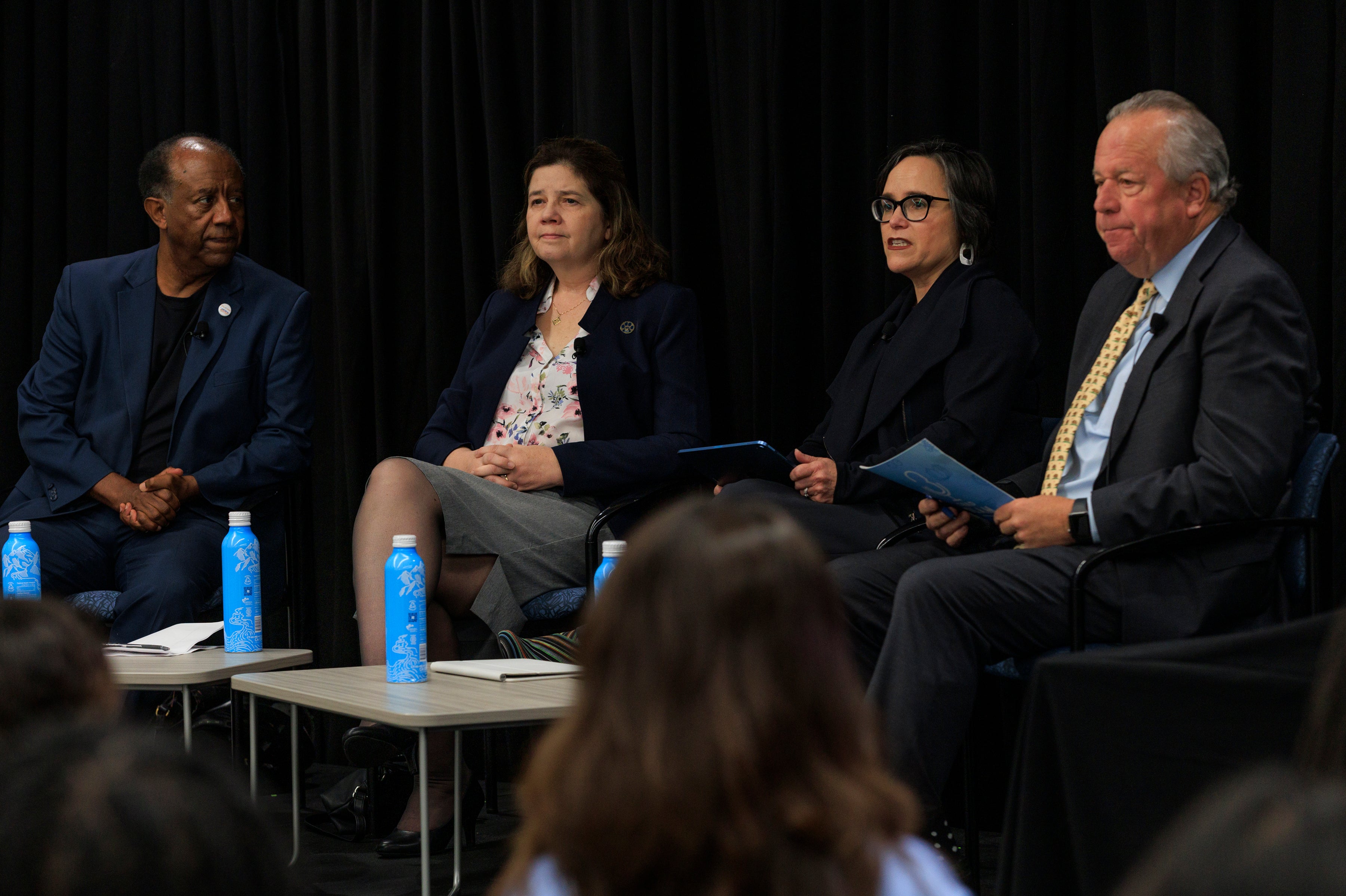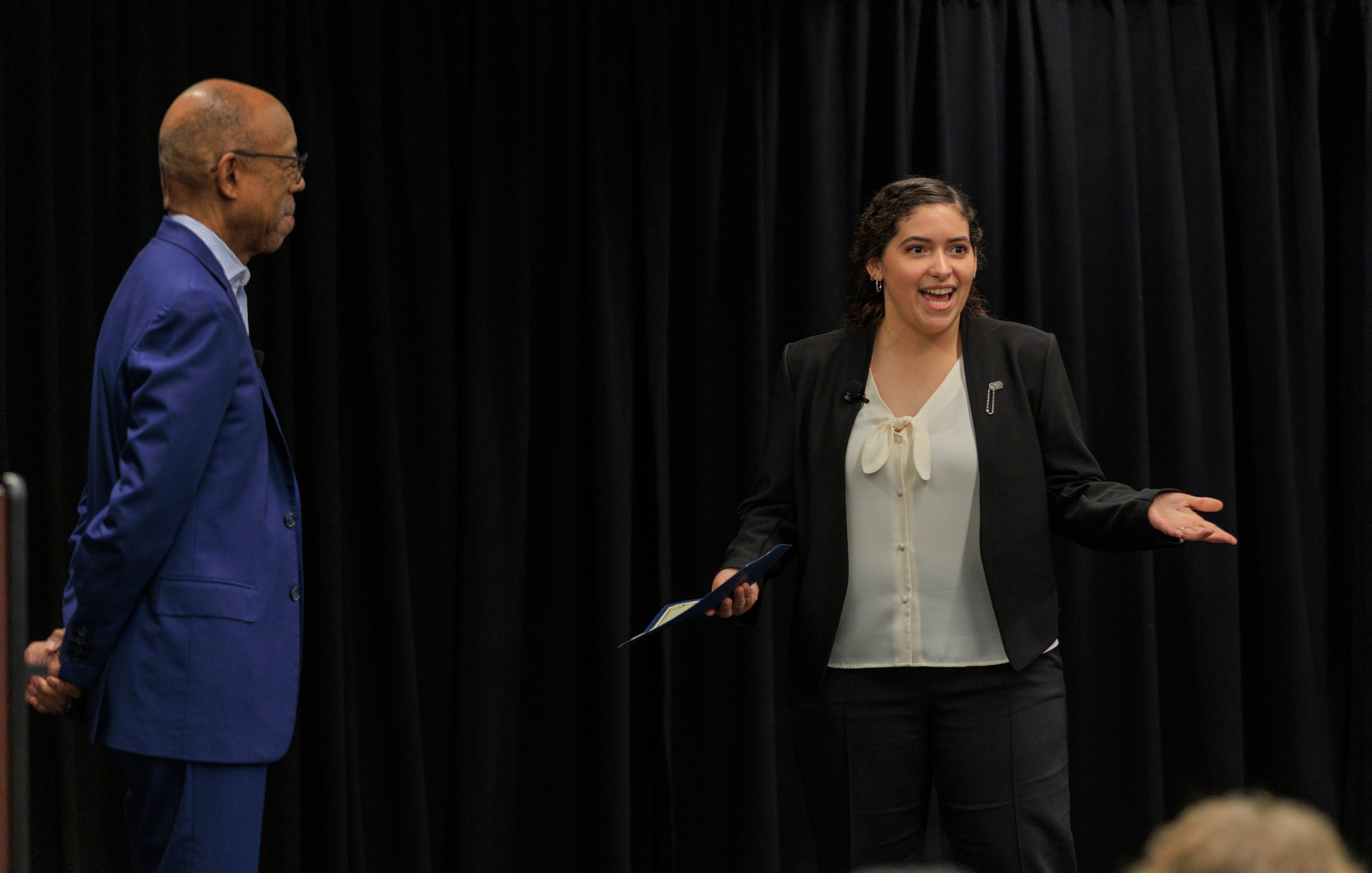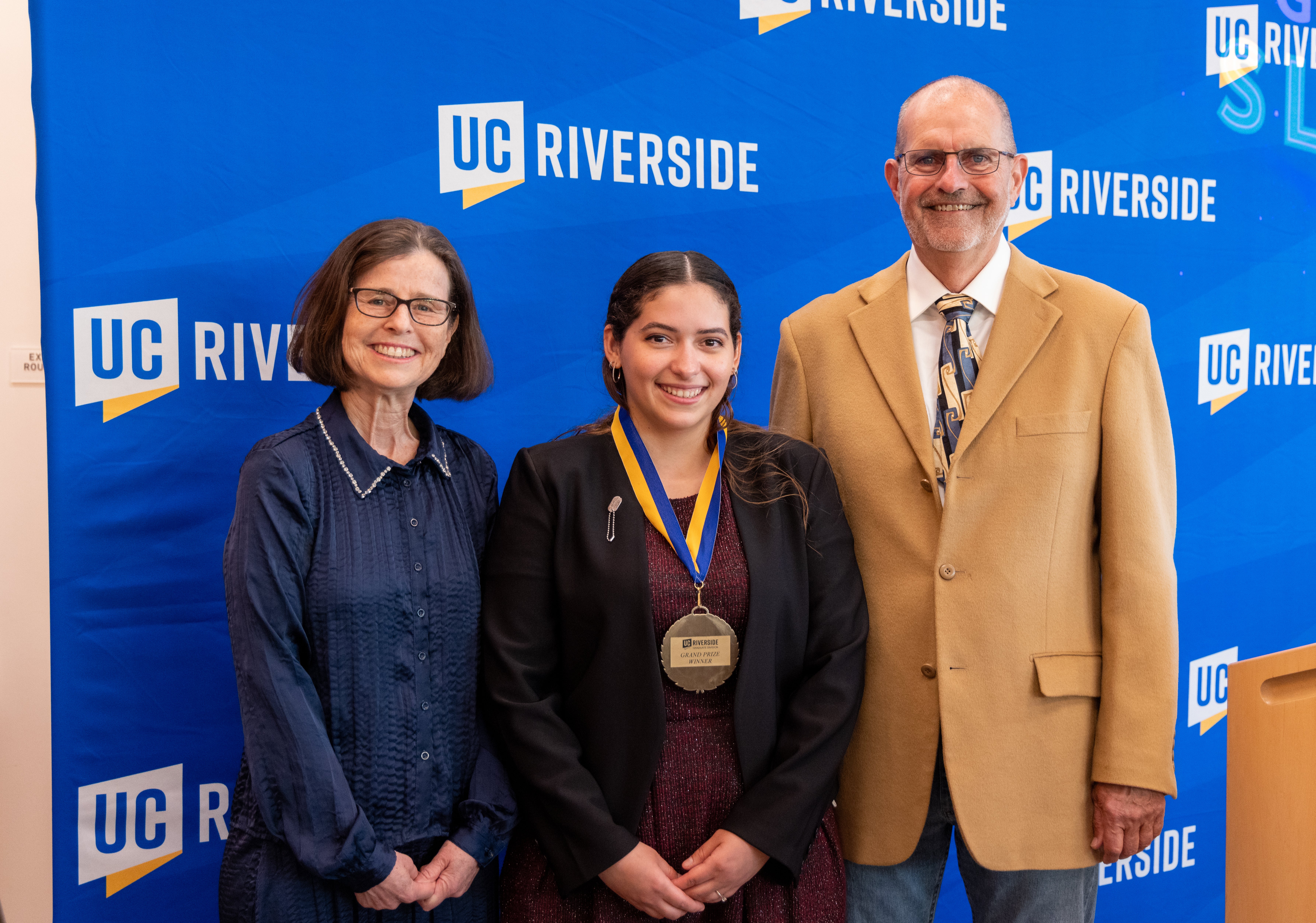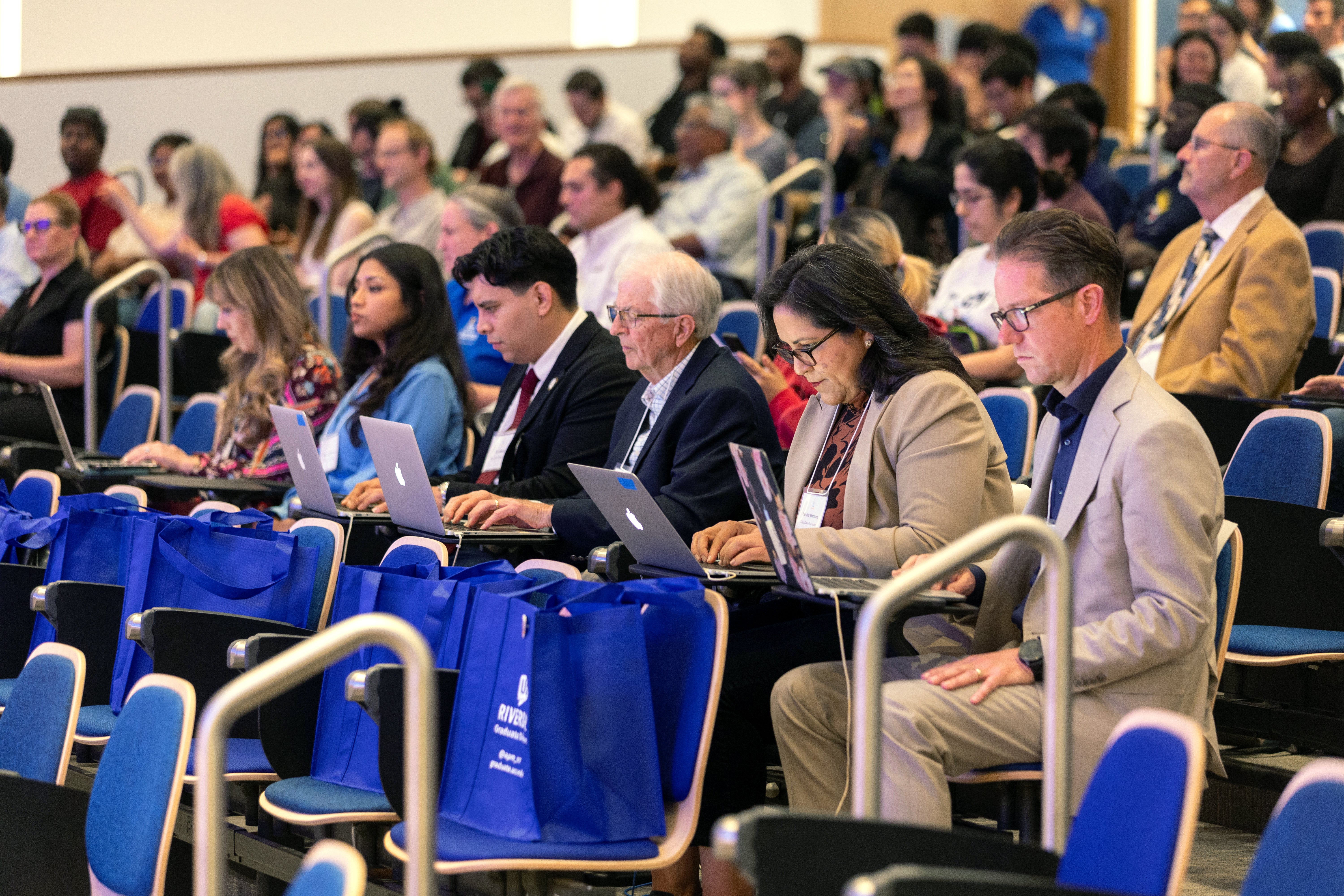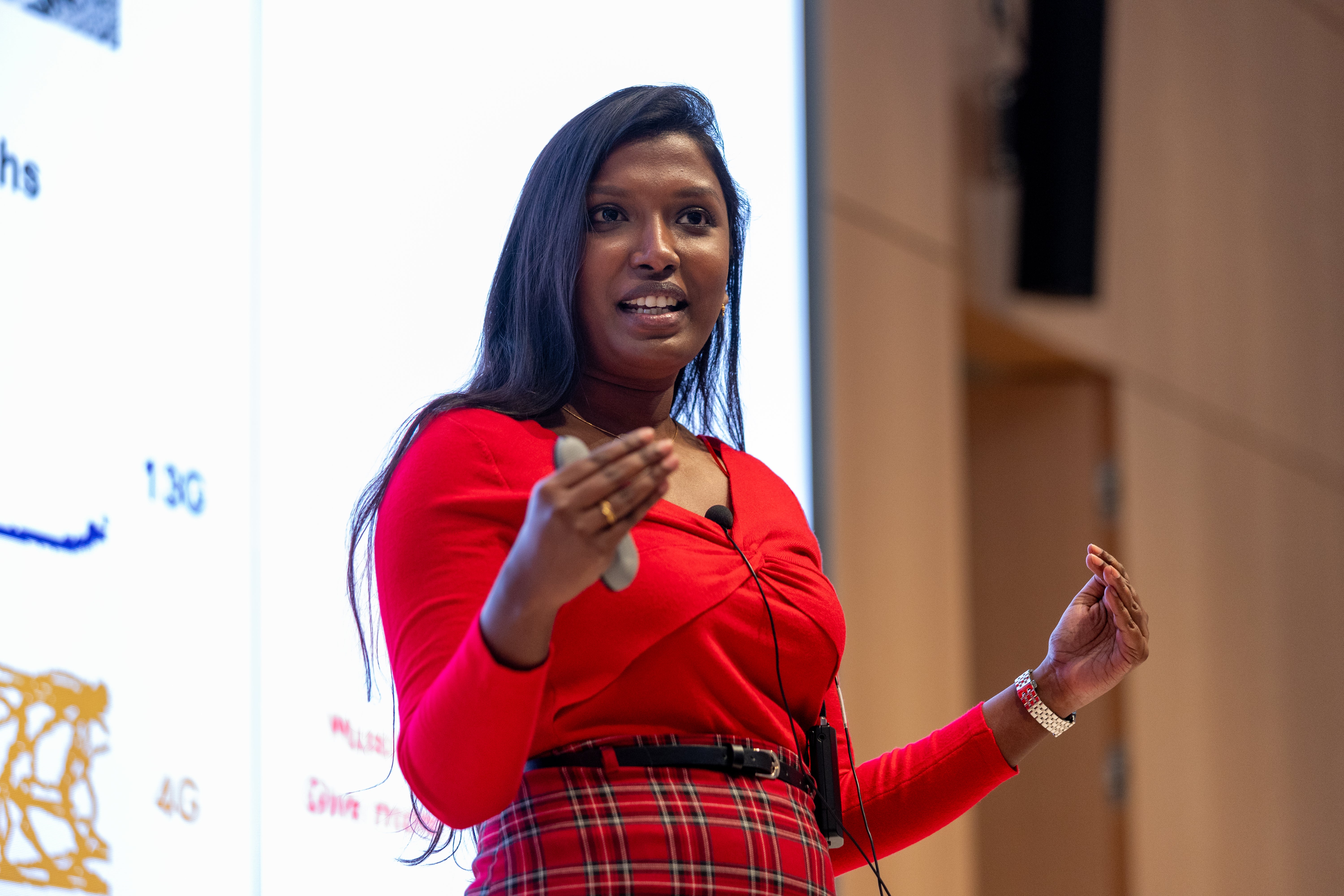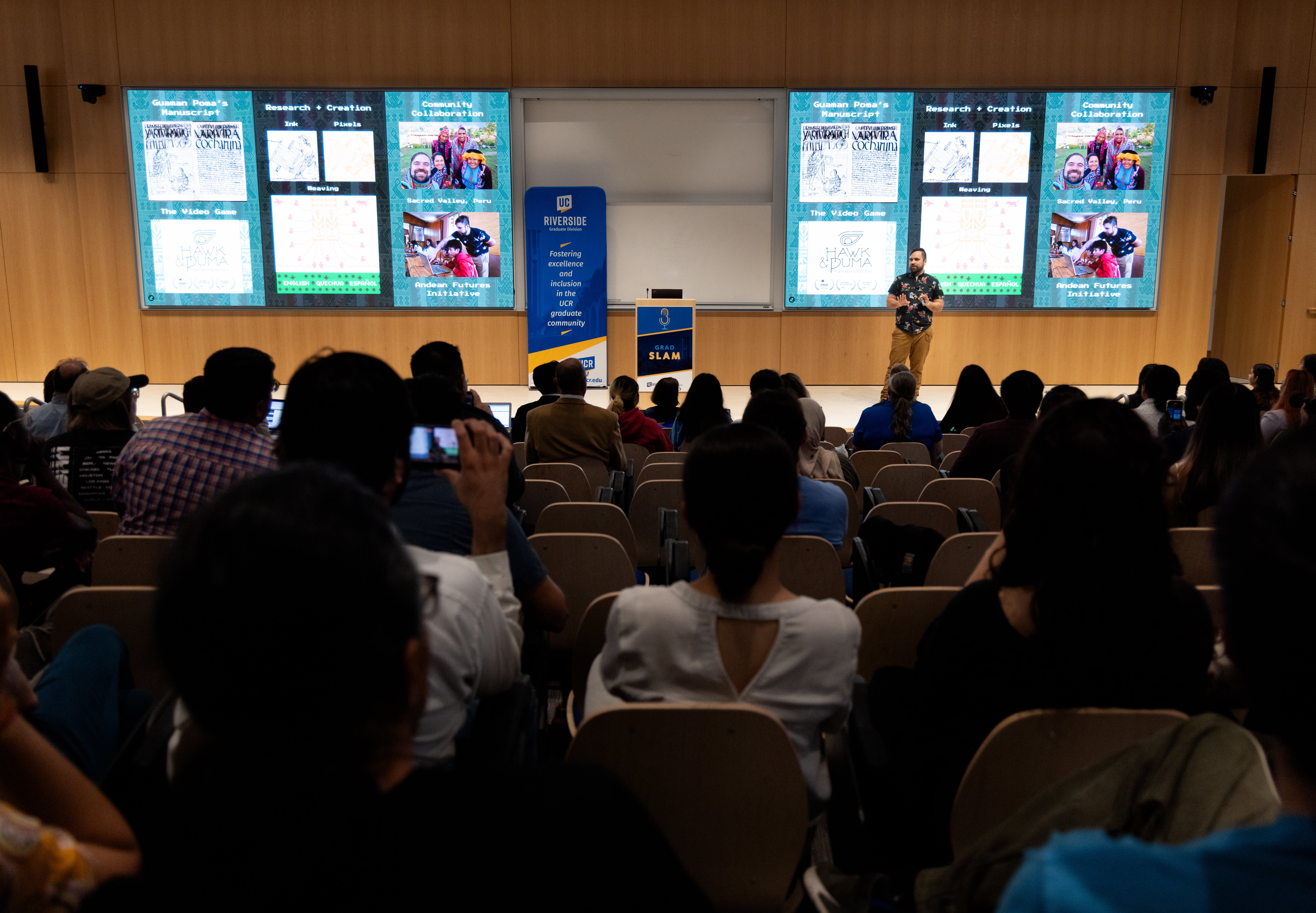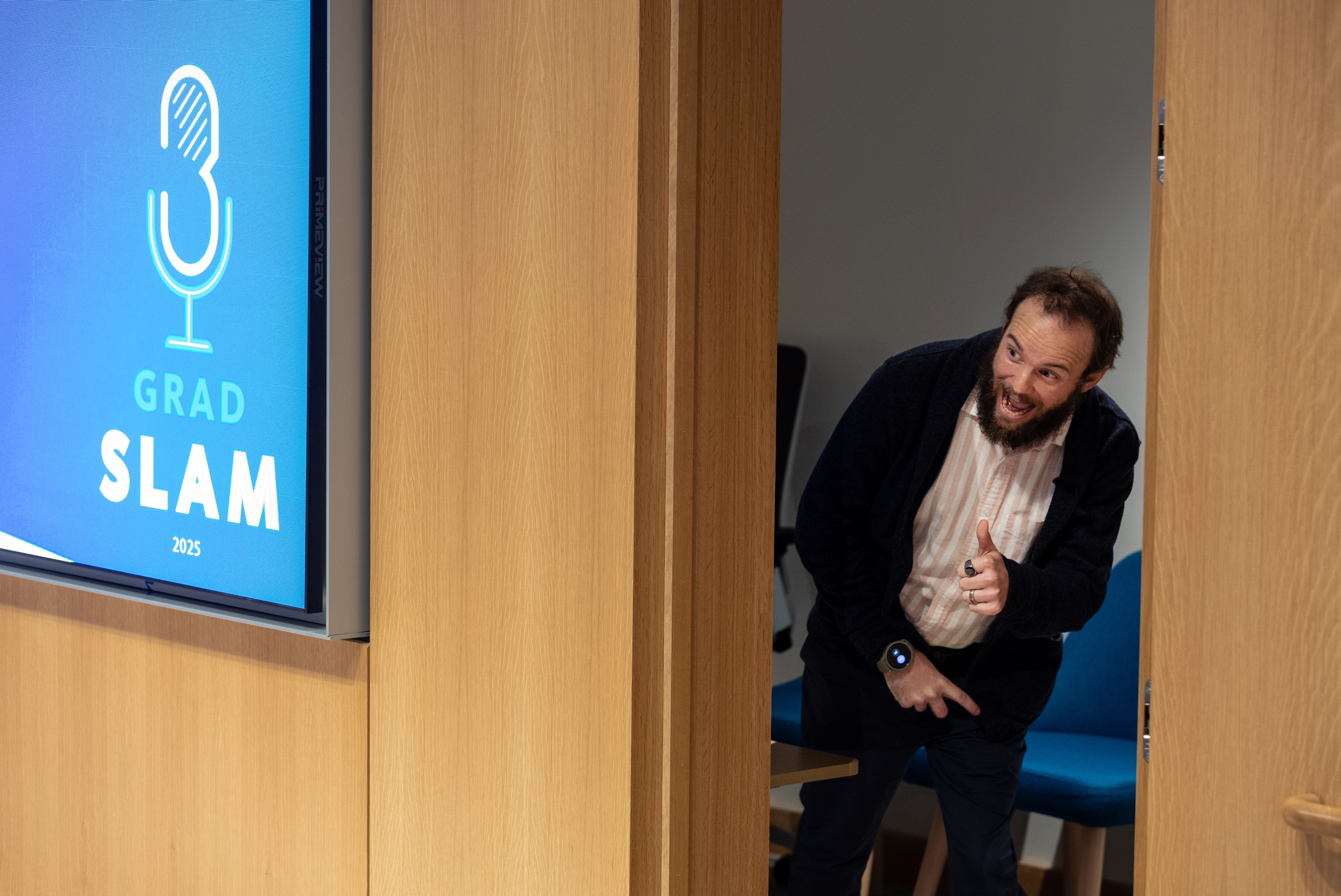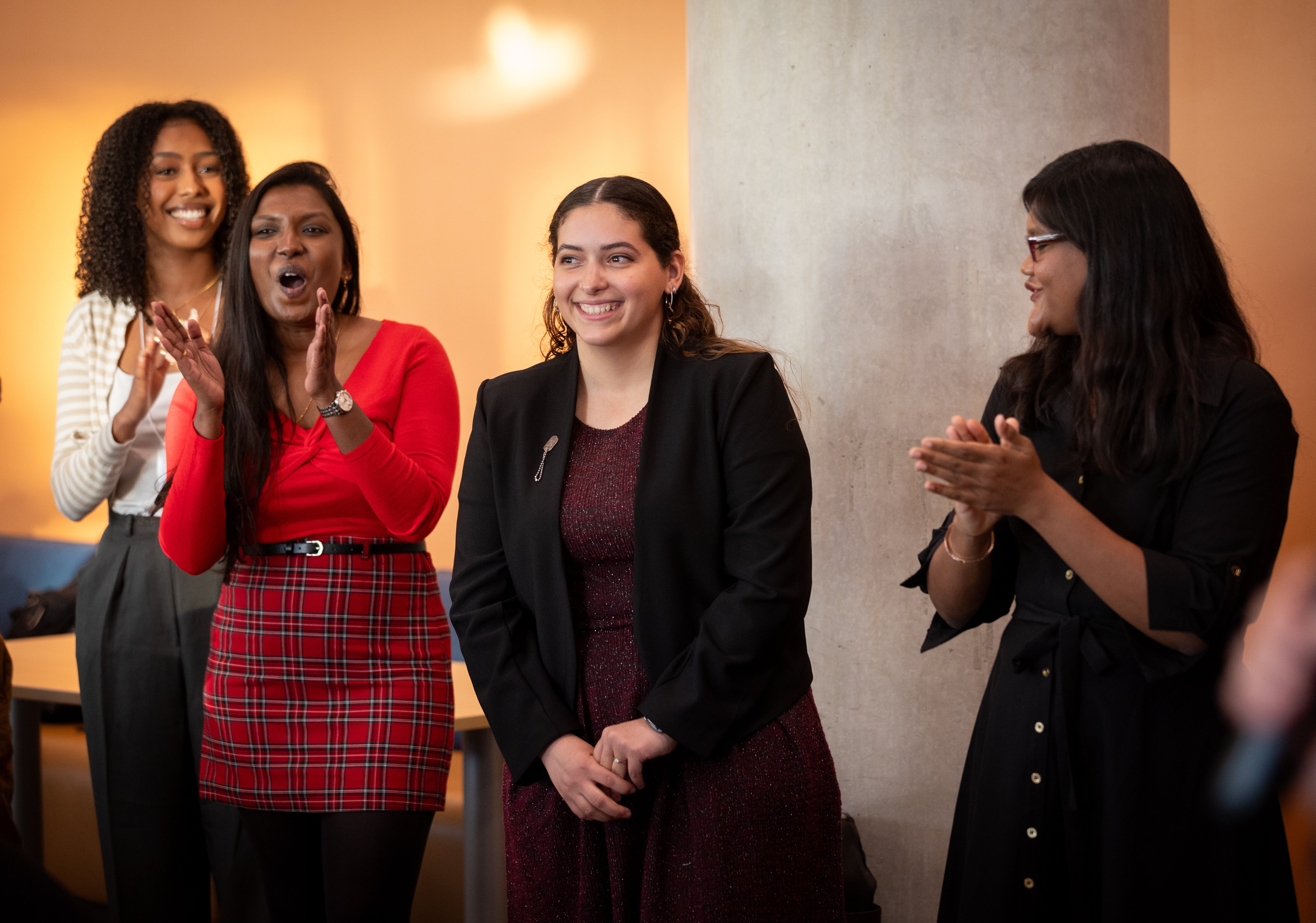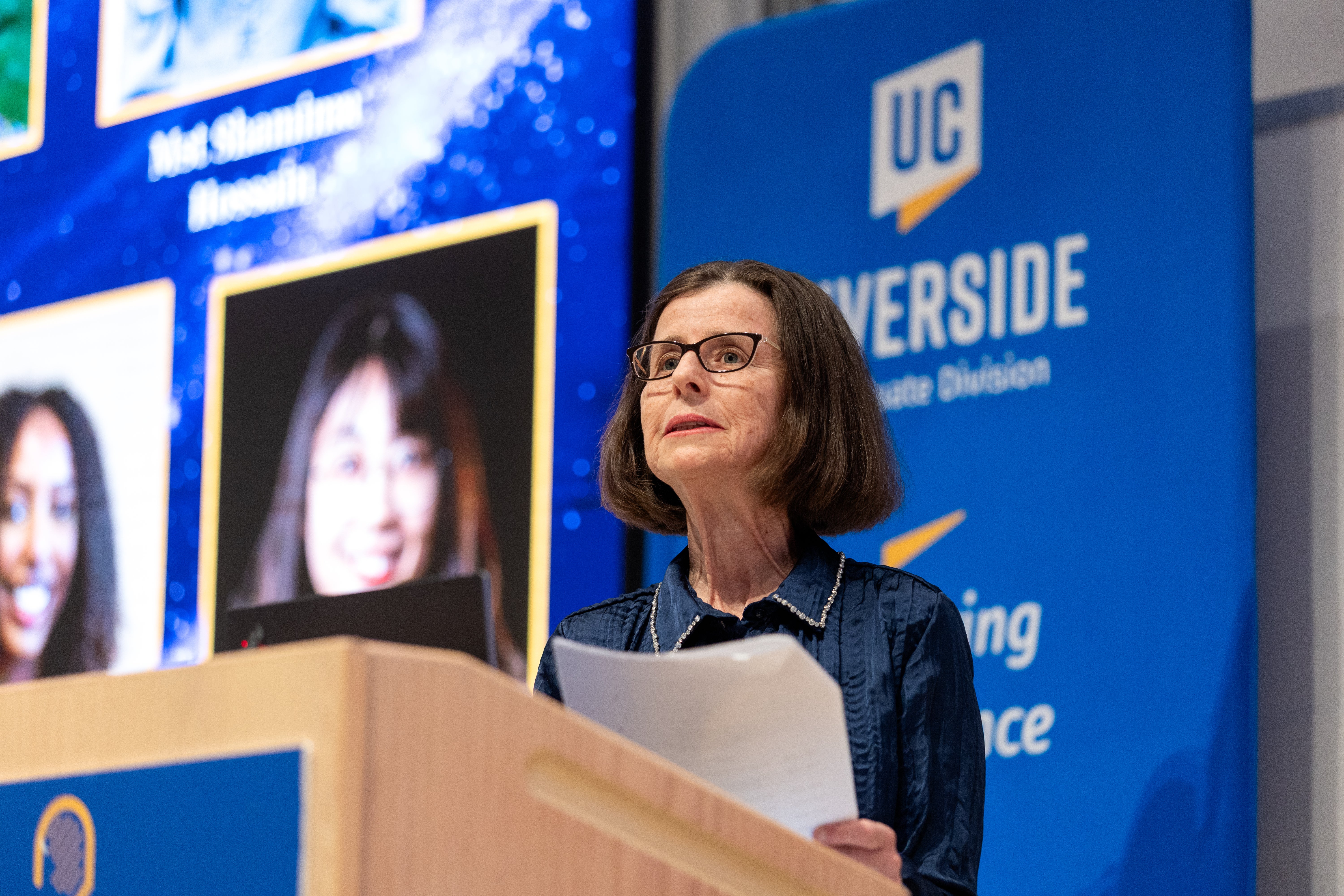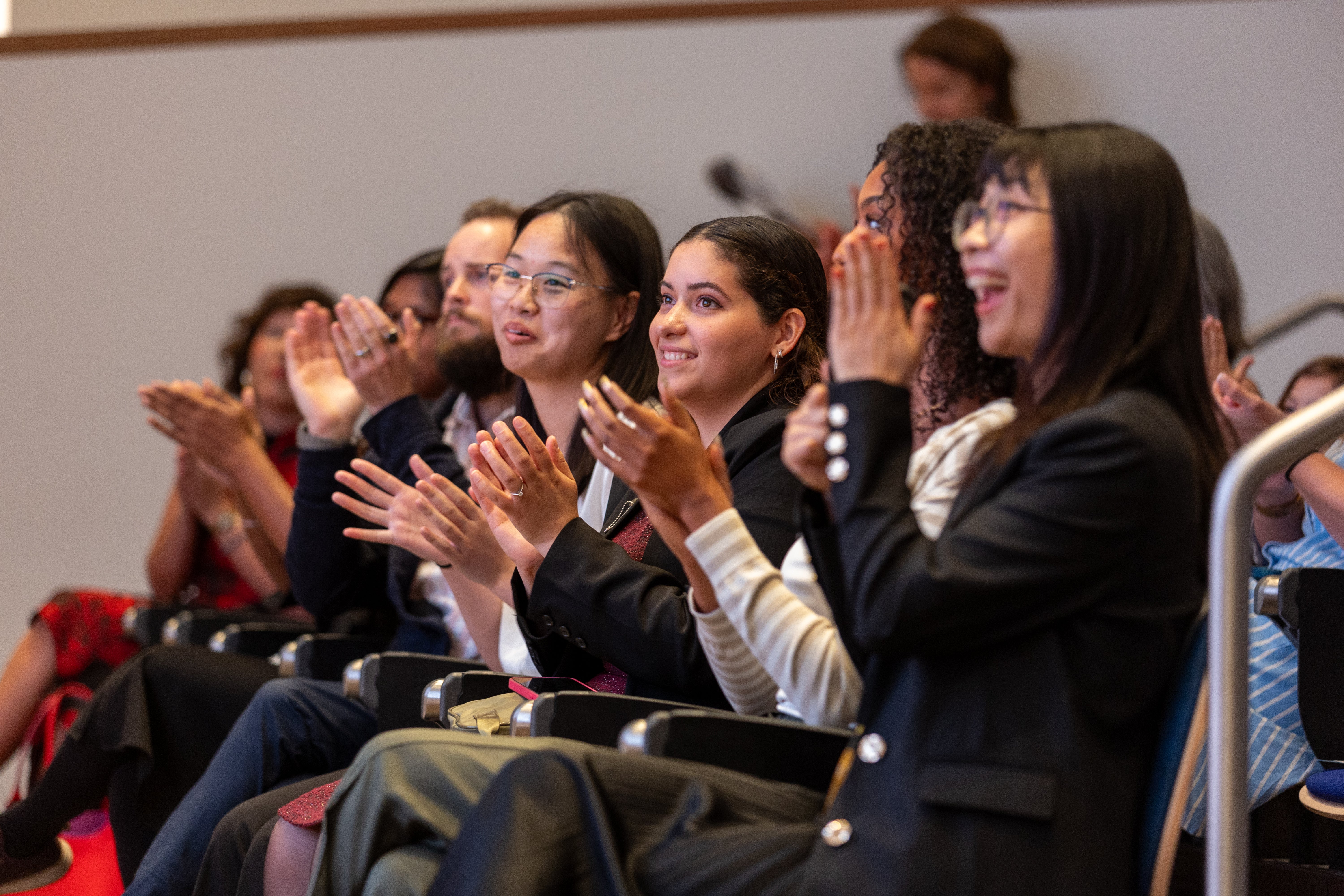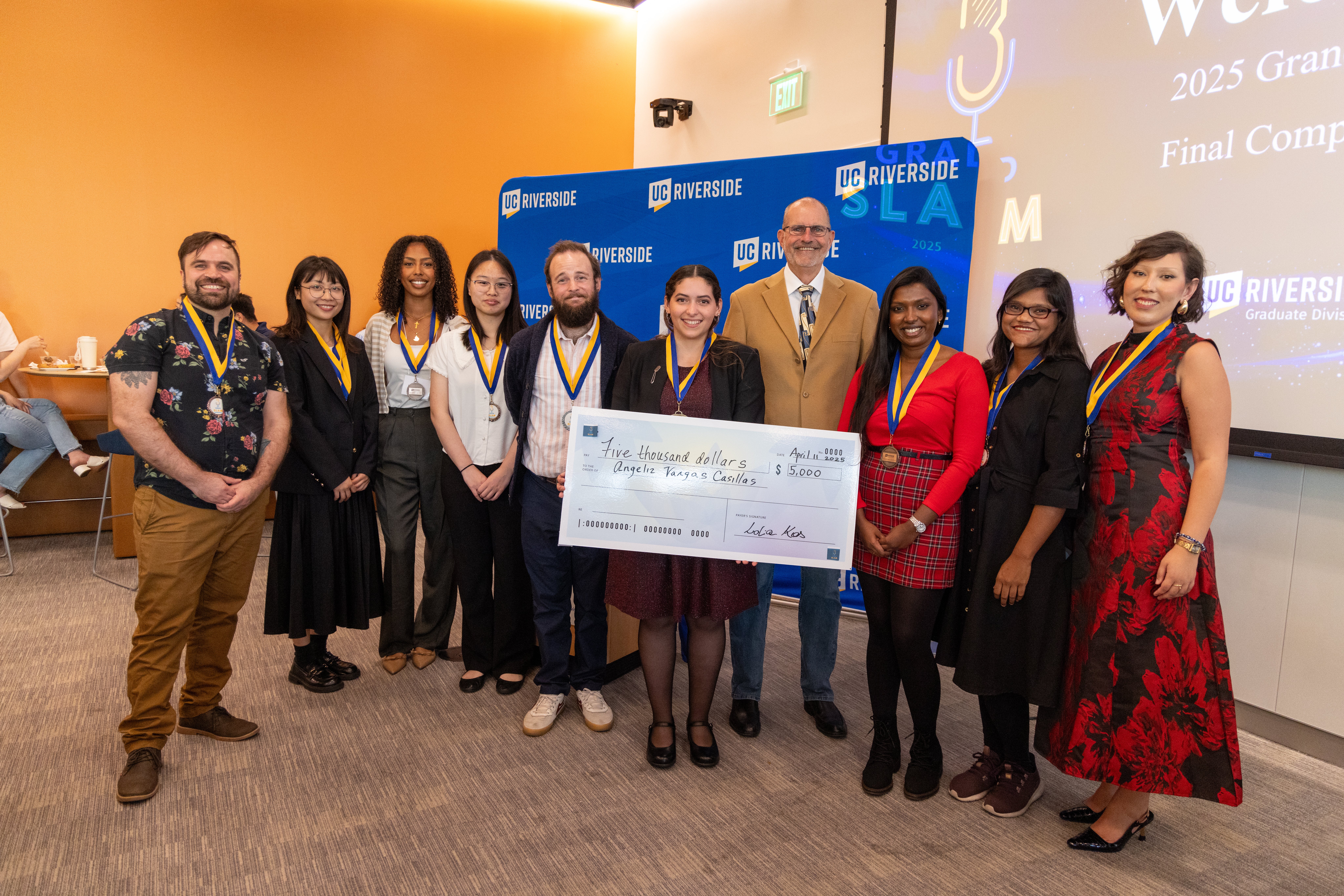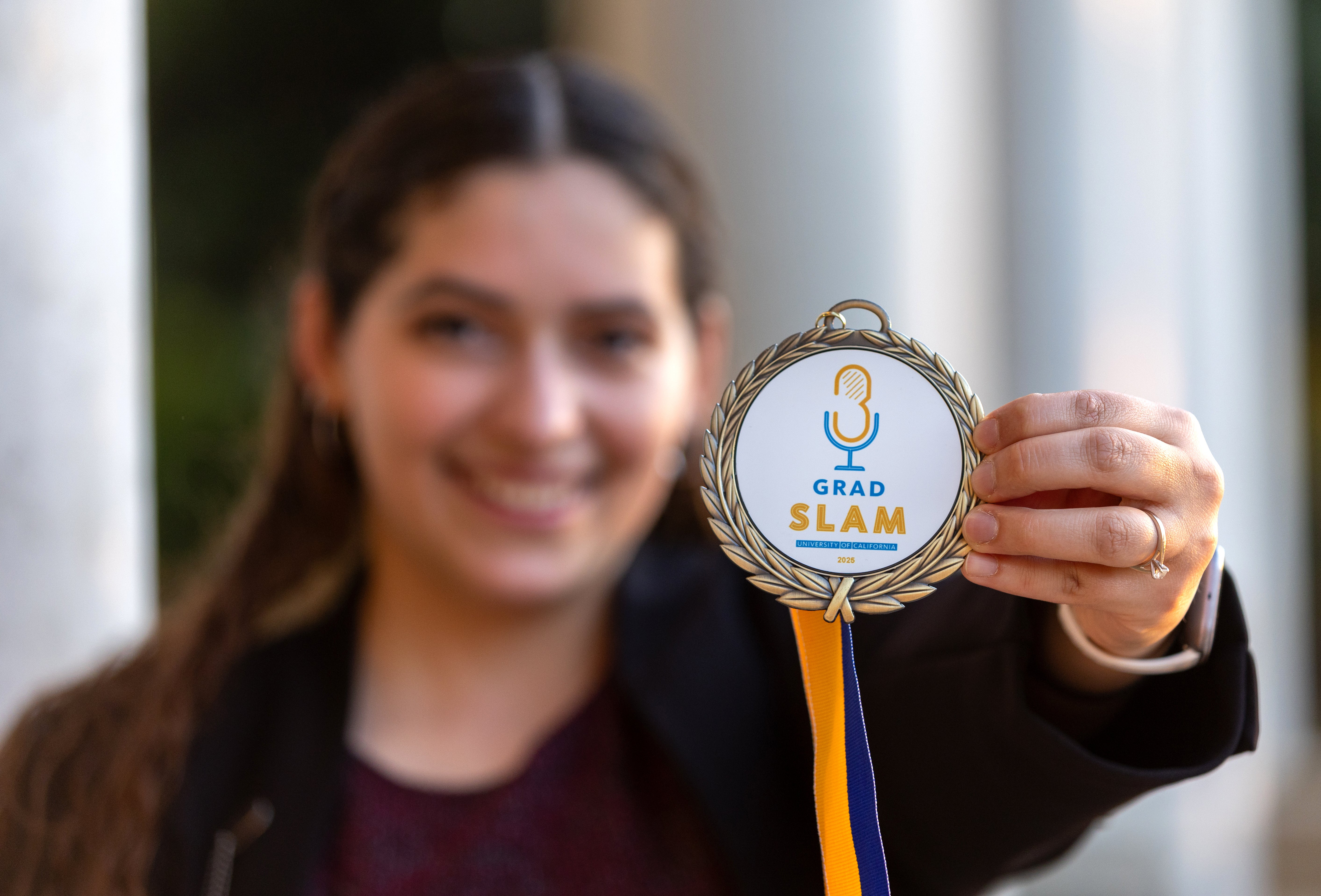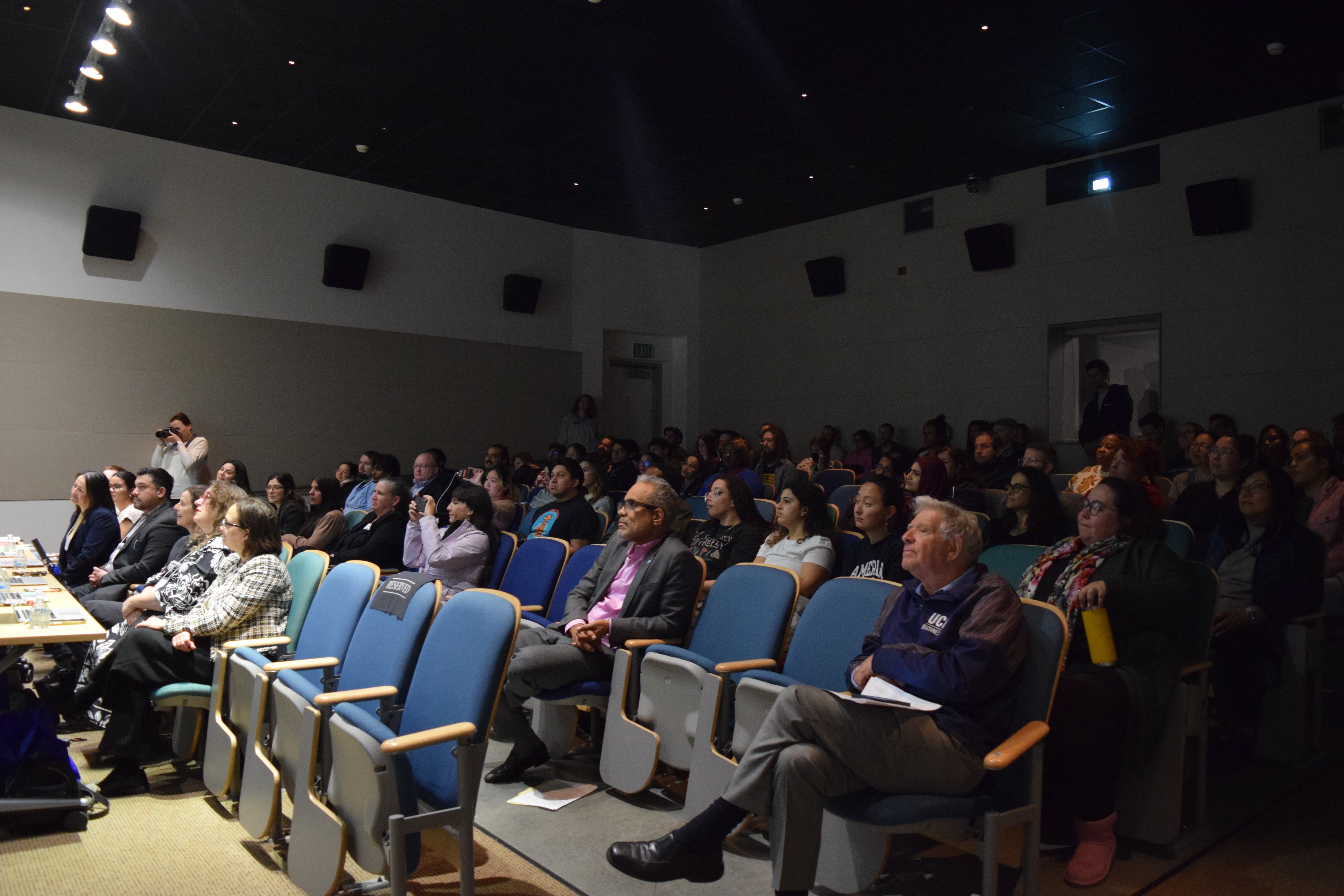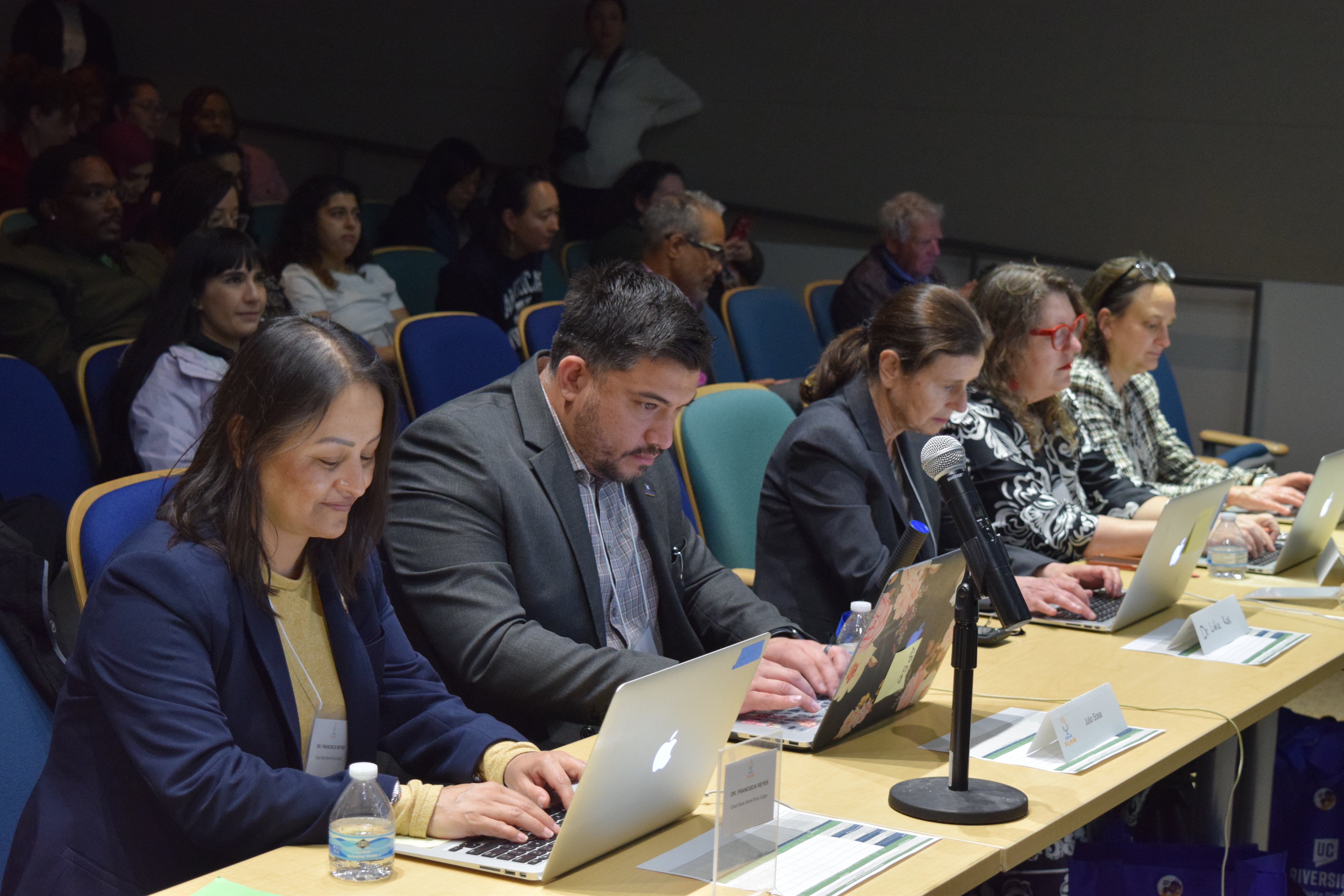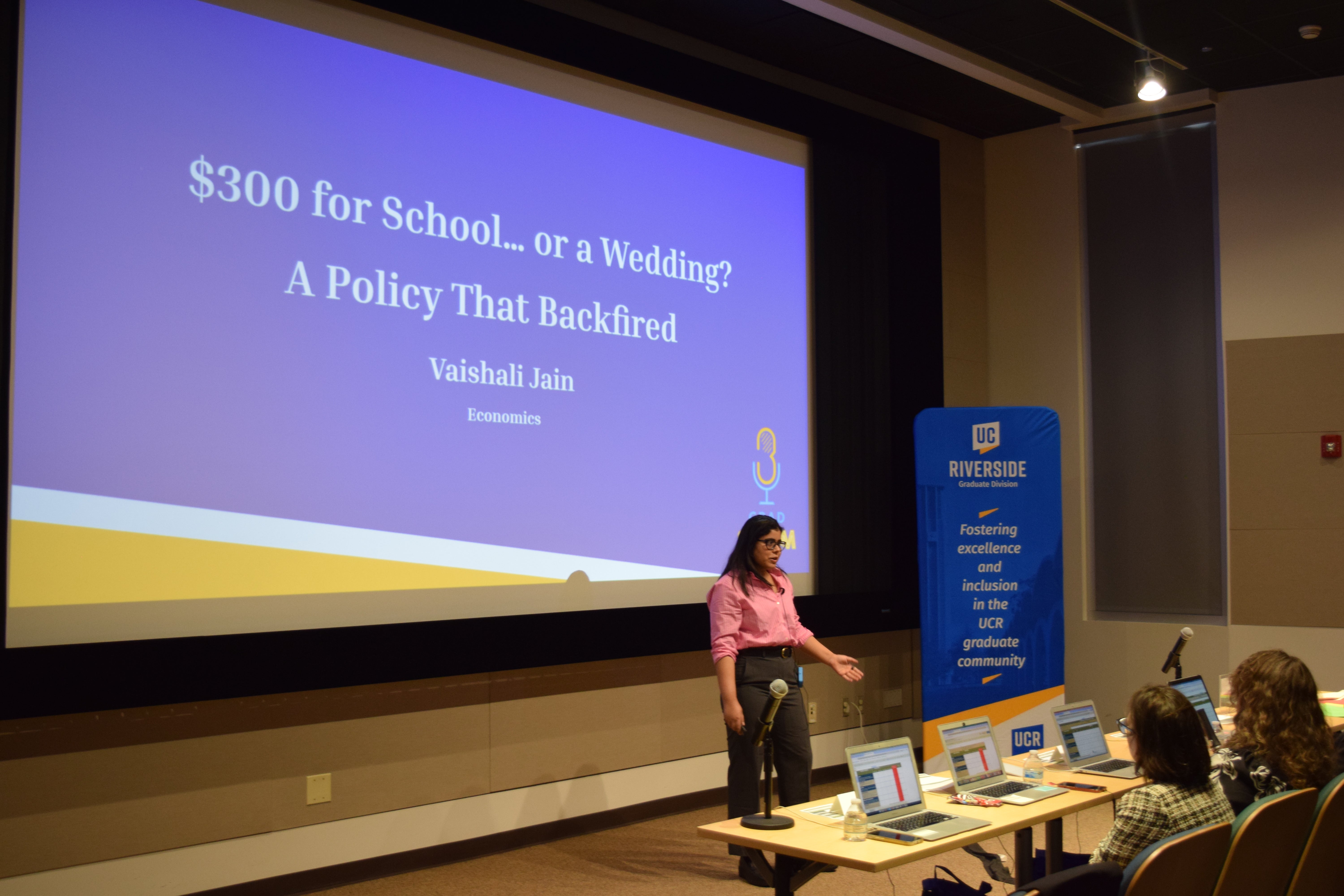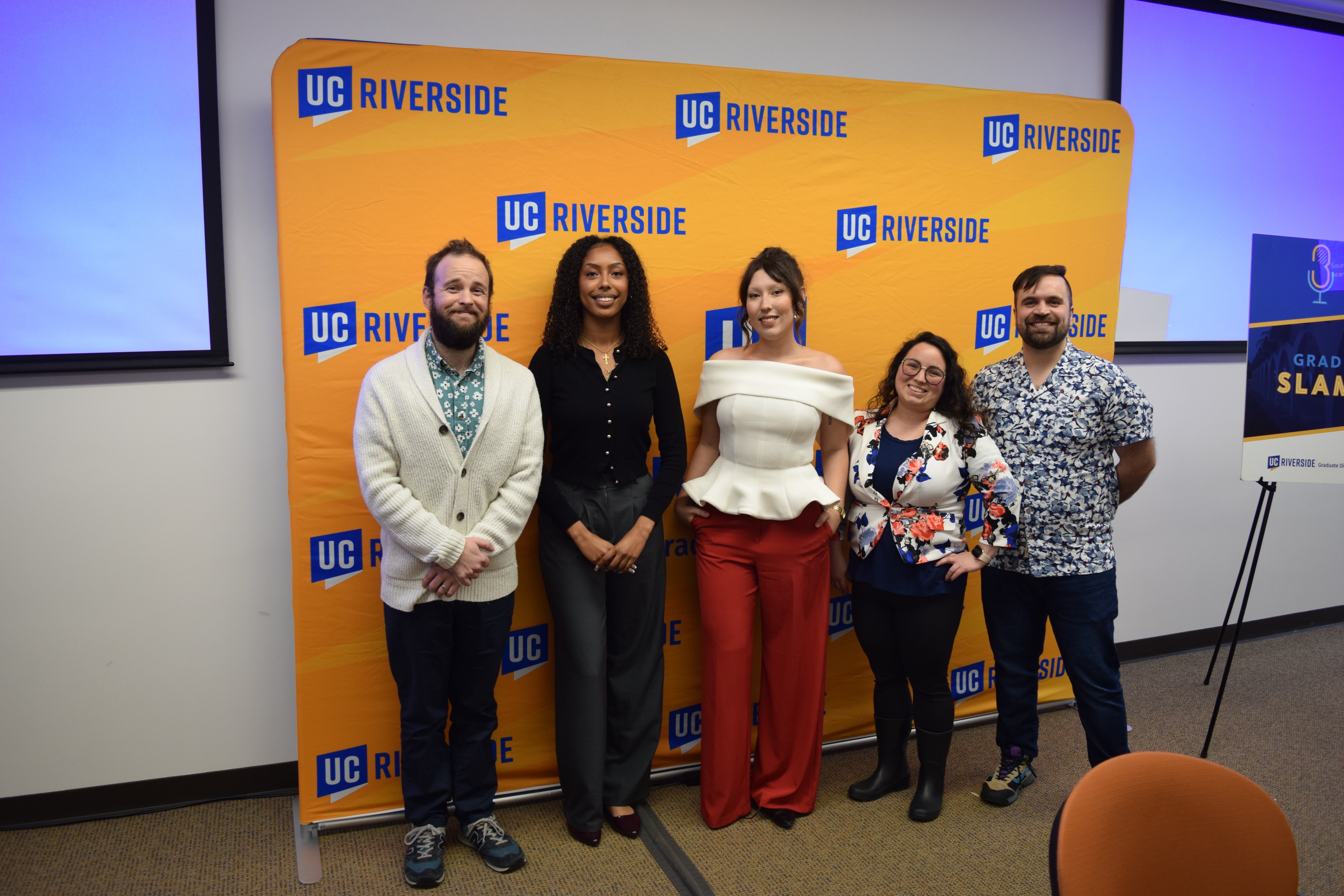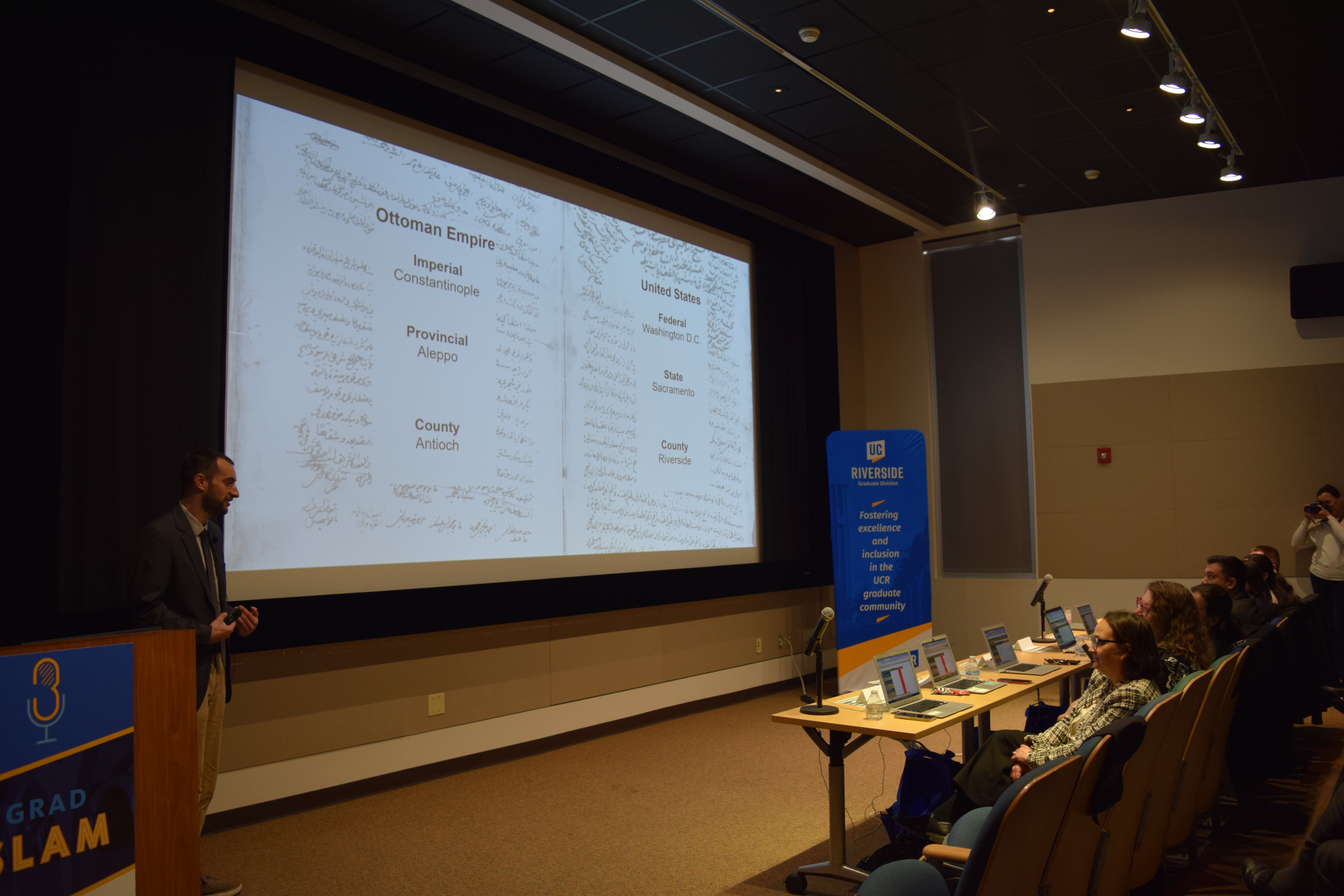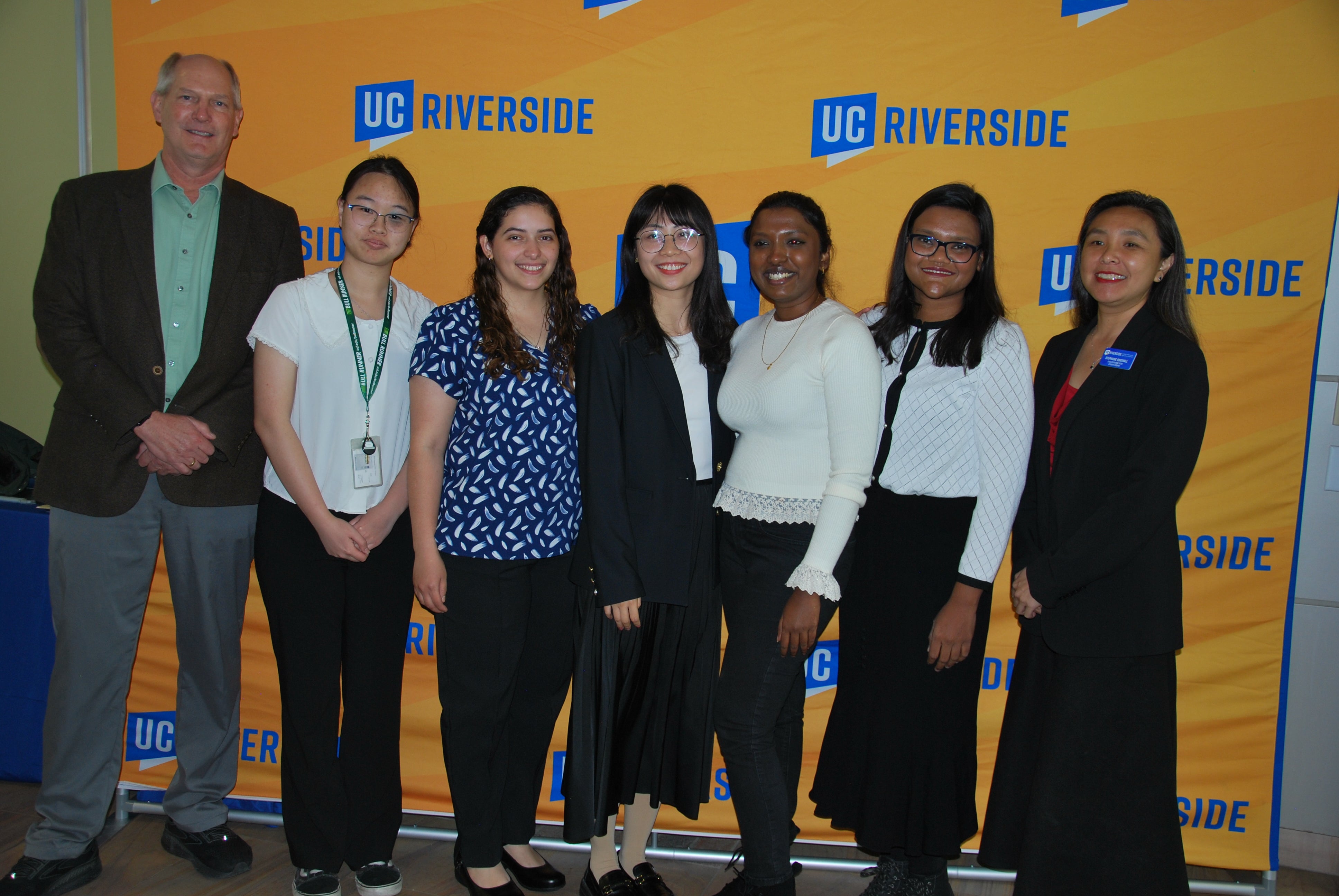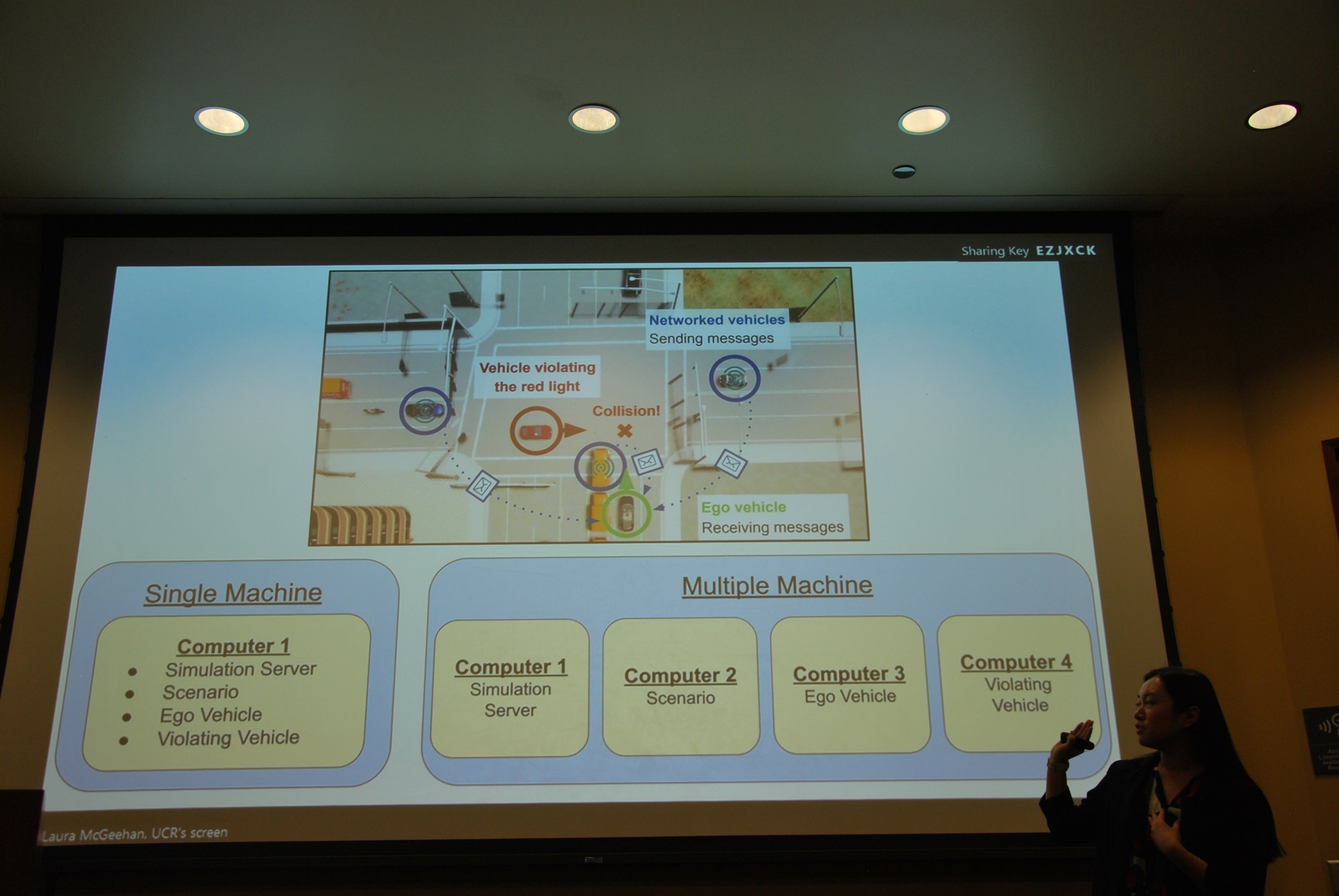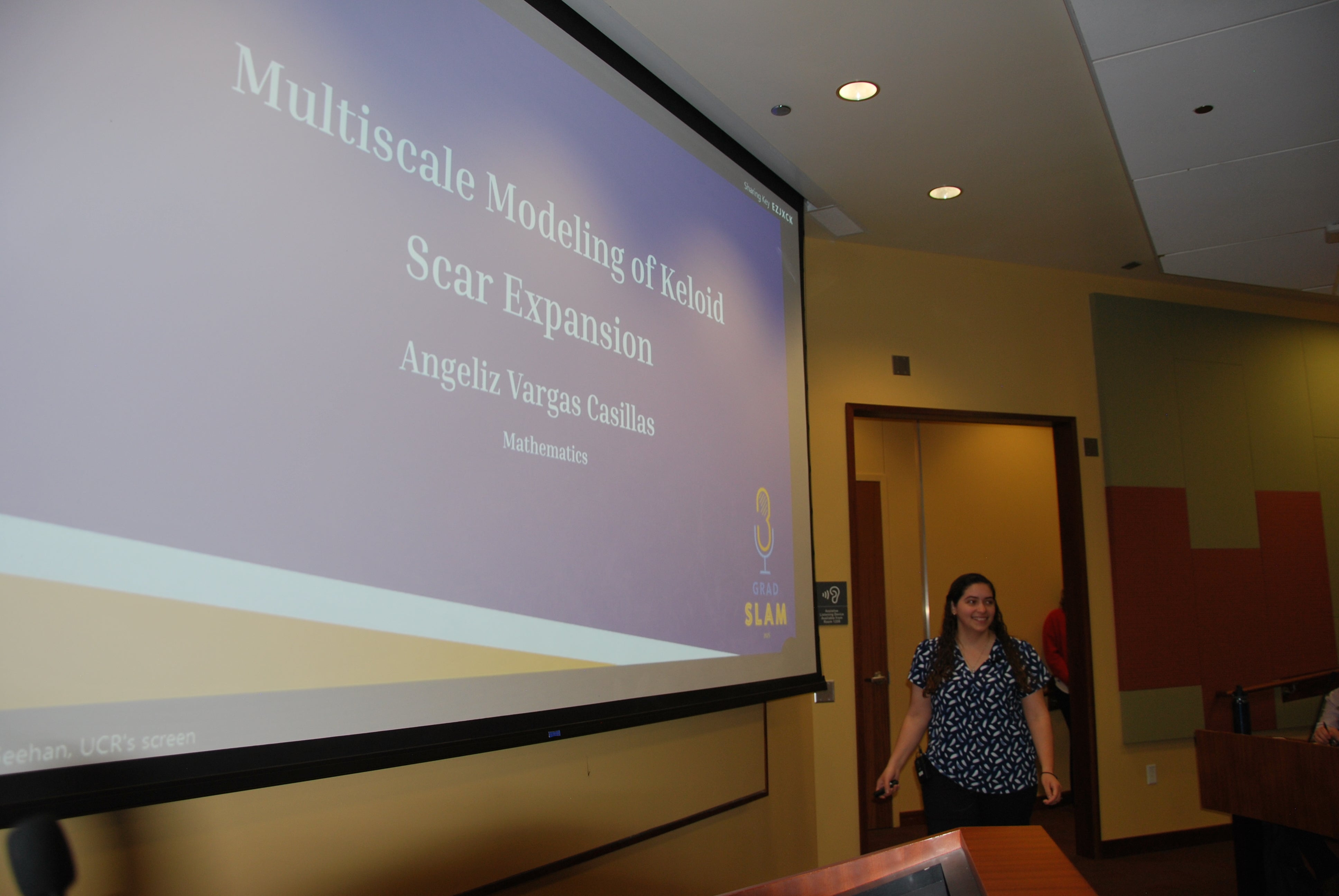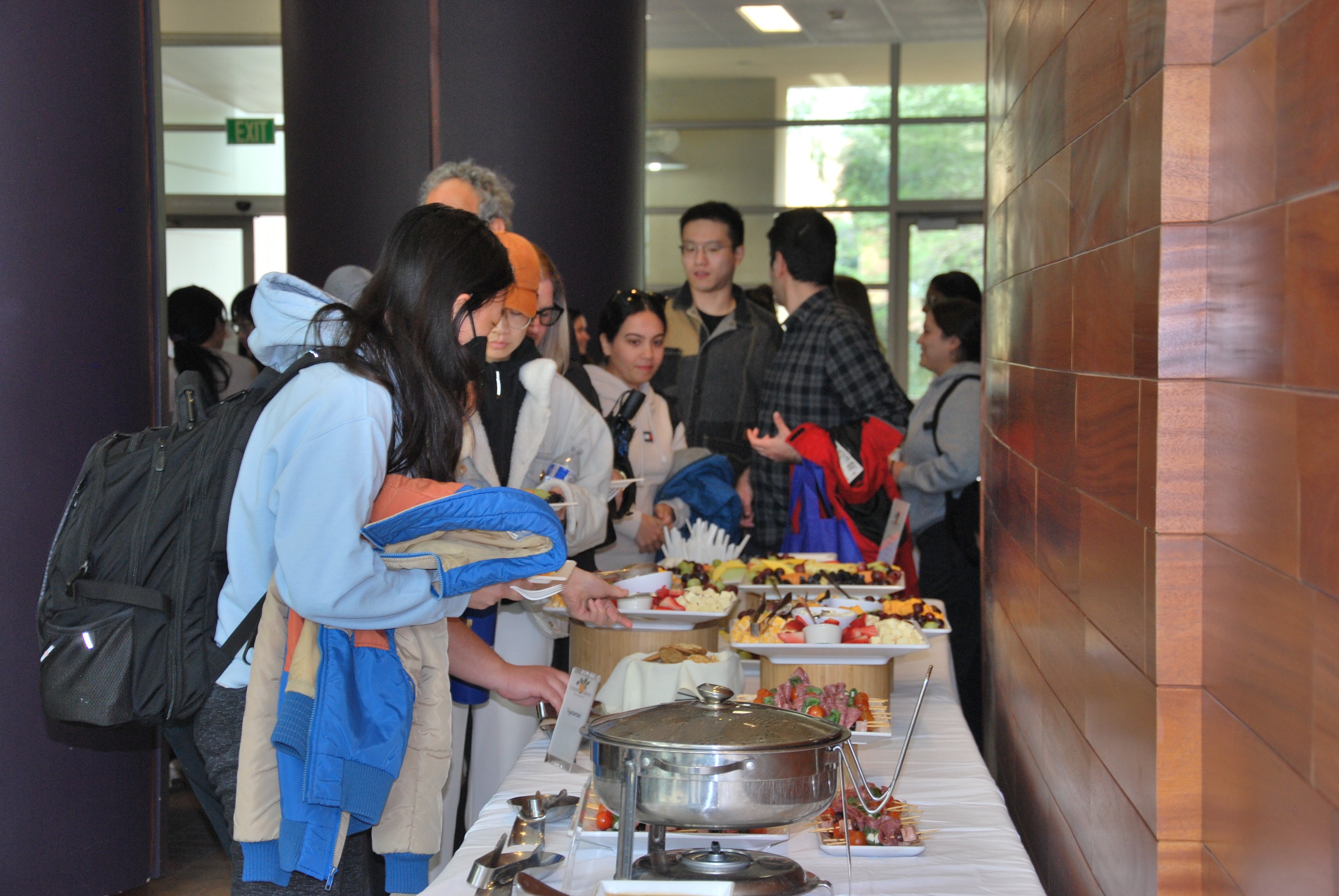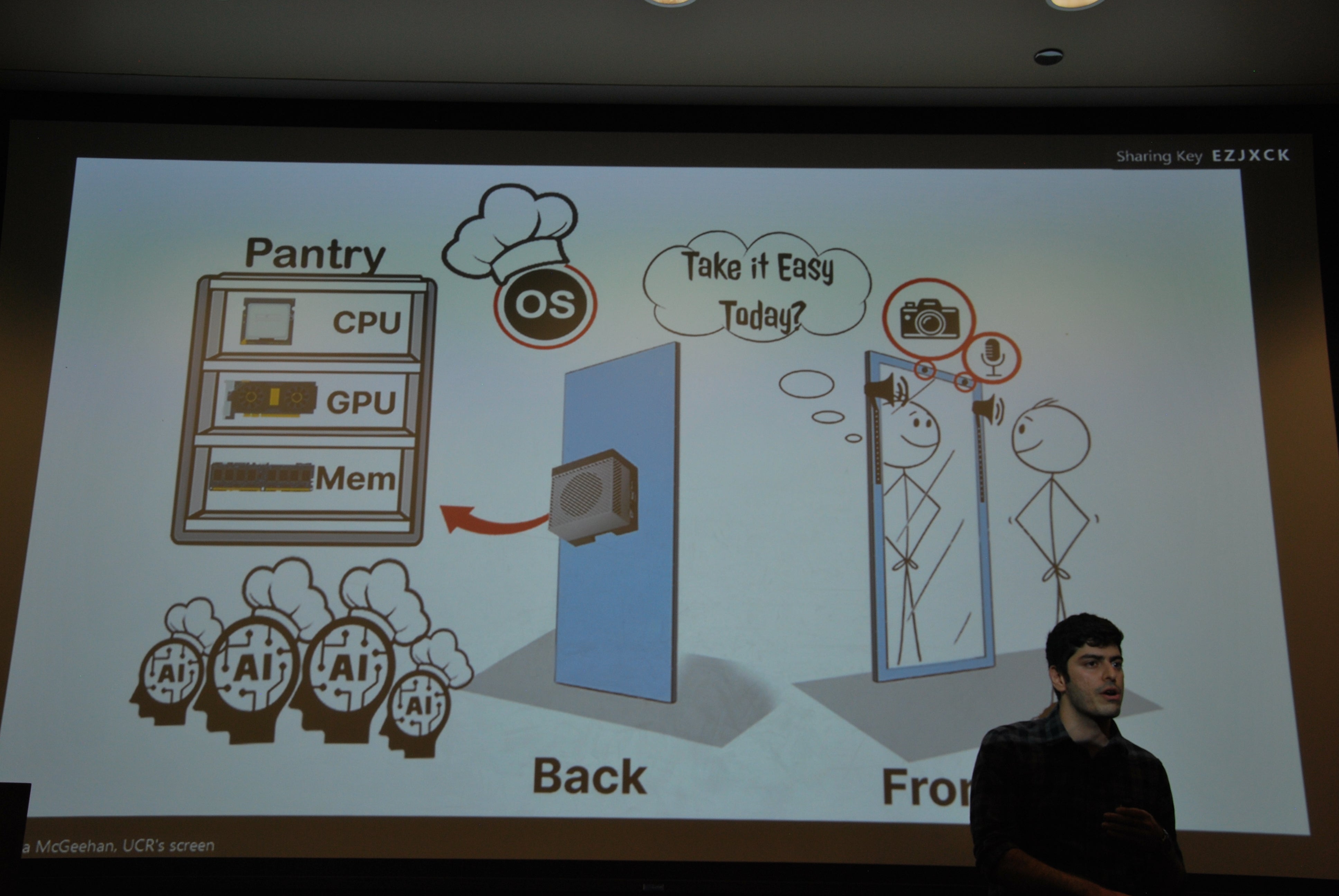Supporting Graduate Students' Academic and Professional Success
Grad Slam 2025
Grad Slam is a UC-wide public speaking competition and professional development opportunity in which graduate students describe their research or creative project in three minutes, with a maximum of one PowerPoint slide, to a non-specialist audience. Participating students are supported through public speaking workshops and feedback sessions, and progress through several preliminary and semi-final rounds. Contestants have the opportunity to win up to $5,000 at the UCR level, and another $7,000 at the UC-wide level of competition.
Click the arrow to turn the page
2025 UCOP Grad Slam Photos
2025 UCR Grad Slam Final Photos
2025 UCR Grad Slam Semi-Final Photos
-
Why should I enter Grad Slam
Professional Development
Gain valuable experience in presenting your research to non-academic audiences.
Public Speaking
Grad Slam provides an opportunity to hone your public speaking skills.
Network
Presenting your research can open the door to new opportunities.
Expand your CV/Resume
Participating in Grad Slam will look great on your CV/Resume.
Prize Money
You could win up to a $12,000 stipend!
-
When and Where
Contestants will be nominated by their Colleges:
Week of February 3, 2025.
Semi-Final Rounds:
Semi-Final A (STEM) will be held March 11, 2025 from 9-11AM in the Genomics Auditorium. Semi-Final B (CHASS, SOP, SOE, BUS) will be held on March 13, 2025 from 2-4PM in INTS 1128. The first half will be the competition itself, while the second half will be a reception for participants and attendees.
UCR Grad Slam Finals:
The UCR Grad Slam Final will be held on April 11, 2025 from 5-7 PM in the School of Business Auditorium, in front of a panel of distinguished judges, UCR Leadership, Graduate Division Staff, and a live audience.
UCOP Grad Slam Finals:
UCOP Grad Slam Finals will be April 29, 2025, at the UC Center in Sacramento.
-
Eligibility and Participation
All eligible UCR graduate students are invited to apply to participate in Grad Slam. To be eligible participants must:
- Be currently enrolled full-time in UCR's Master's or Doctoral Graduate Programs in good standing. MD students are not eligible.
- Be no more than one year beyond normative time
- Be enrolled through Spring 2025
- Be available to be present during a semi-final round (in-person), the UCR Finals (in-person), and the UCOP Finals in Sacramento (April 29, 2025).
- Not have been selected a UCR Grad Slam winner previously and not have been selected as a UCR Grad Slam 1st Runner-Up, UCR 2nd Runner-Up, or UCR Audience Choice Grad Slam winner in the previous year's competition.
- In cases of collaborative research, the presenter’s contribution to the project must be salient and clearly specified.
-
Grad Slam Prizes
The prizes are all fellowships and regular rules of financial aid apply:
- UCOP Grand Prize: $7,000
- UCOP First Runner-Up: $4,000
- UCOP Second Runner Up: $2,000
- UCOP Audience Choice Award: $1,000
- UCR Grand Prize: $5,000
- UCR First Runner-Up: $2,000
- UCR Second Runner-Up: $1,000
- Audience Choice Award: $1,000
- Up to 8 Honorable Mentions: $250
-
Rules and Guidelines
General Rules and Guidelines for Grad Slam Competition
- Presentations can be no longer than 3 minutes.
- Only one static PowerPoint slide may be used (no animations, videos, or sound).
- Timing commences when the student engages with the audience. If engagement starts with a hand clap, a gesture, an audio or video clip or any other such engagement, prior to speaking, the clock begins at that time; if there is no such engagement the clock starts when the student begins speaking. Timing will end after the last word is spoken. Points will be deducted from the final score, beginning with one point at 3:03, and one point being taken off for every two seconds the speaker continues after that.
- The UCR competition has two stages:
- Semi-Final will be in March.
- Final competition will be in April.
- The UC-Systemwide Final will be in person in April 29
Guidelines for Single Powerpoint Slide:
- A maximum of one PowerPoint slide, excluding a title slide that will be generated by organizers, is allowed but is optional; no Prezi, Google Slides, or other presentation formats.
- Students must create their PowerPoint slide themselves - they cannot ask someone else to design the slide.
- Use of PowerPoint templates is allowed. The slide can include visual elements (charts, visualizations, photos, clip art, etc.) created by someone other than the student, as long as the slide credits the original creator.
- PowerPoint animation effects are not allowed.
- Embedded audio and/or video clips (including but not limited to .gif, .avi, .mp4, .mp3, and .wmv file types) are not permitted.
- Props are allowed, but need to be cleared by the program coordinators, require minimal set-up, and not produce a mess. To request use of props please email laura.mcgeehan@ucr.edu at least one week prior to the competition.
- Submissions may not contain any copyrighted material, such as licensed graphics. Images and visual elements must either be public domain, intellectual property of the student, or fall under "fair use" provisions. Click on the links below for more information.
The link to the student orientation video can be found here
-
Scoring
- Clarity
- Did the speaker provide adequate background knowledge to make the talk and the importance of the project understandable?
- Organization
- Did the presentation follow a clear and logical sequence?
- Delivery
- Does the student’s body language, eye contact, pace, and vocal range contribute to the presentation’s effectiveness?
- Does the student deliver the talk without relying excessively on notes?
- Is the student’s presentation style confident and enthusiastic?
- Appropriateness
- Was the topic and its significance communicated in language appropriate to an intelligent, but non-specialist audience?
- Did the speaker avoid discipline-specific jargon or explain it when necessary?
- Significance
- Does the student foreground why this project matters in his/her field?
- If the student presents on collaborative work, was the student’s unique contribution clearly specified?
- Engagement
- To what extent did the talk speak to the judges’ intellectual curiosity?
- Did it make the judges want to learn more about the topic?
- Clarity
-
Resources
UCOP Examples of UC-Wide Competition winners: https://gradslam.universityofcalifornia.edu/past-winners/
UCOP Grad Slam official page: https://gradslam.universityofcalifornia.edu
2016 UCOP Final winner from UCR: https://youtu.be/14KtIkne68E
Presenting Effectively With Visual Aids Workshop, Dr. Annika Speer, UCR
Grad Slam Pitch Workshop, Bri McWhorter, Activate to Captivate
- Website link: https://www.activatetocaptivate.com/
UC Berkeley Professor Jonathan Shewchuk’s “Giving an Academic Talk": https://people.eecs.berkeley.edu/~jrs/speaking.html
Explaining Quantum Computing to Kids, Students, and Professionals: https://youtu.be/OWJCfOvochA
How to Talk like TED by Carmine Gallo, Article by Guy Kawasaki: https://www.linkedin.com/pulse/20140306161616-2484700-how-to-talk-like-ted/
Presentation Tips
- How to Give More Persuasive Presentations: A Q&A with Nancy Duarte: https://blog.ted.com/how-to-give-more-persuasive-presentations-a-qa-with-nancy-duarte/
- 7 Things to Do When You Have to Give a Short Speech, Bill Murphy Jr.: https://www.inc.com/bill-murphy-jr/7-things-to-do-when-you-have-to-give-a-short-speech.html
Images and Visuals
- 10 Tips For Designing PowerPoint Presentations That Don’t Suck, Adobe: https://business.adobe.com/blog/basics/10-tips-for-designing-presentations-that-dont-suck-part-1
- How To Add Powerful (And Legal) Images To Your Presentation, David Teten: https://www.forbes.com/sites/davidteten/2013/08/15/how-to-add-powerful-and-legal-images-to-your-presentations/#1d2b62826dea
Presenting with Confidence
- Conquering Stage Fright, Anxiety and Depression Association of America: https://adaa.org/understanding-anxiety/social-anxiety-disorder/treatment/conquering-stage-fright
- Tips and Techniques for More Confident and Compelling Presentations, Matt Abrahams: https://www.gsb.stanford.edu/insights/matt-abrahams-tips-techniques-more-confident-compelling-presentations

